Hello and welcome to Work Week, the podcast where we answer one big question about the rapidly evolving workplace, explore what the research says about the topic, and explain what it all means for you.
I’m Dr. Kelly Monahan, Managing Director at The Upwork Research Institute. What you’re hearing is a digital proxy of my voice created by our team with the help of AI. And while AI’s ability to cut costs and increase productivity is a frequent theme of our podcasts, today we’re not looking at AI’s usefulness as a tool. Rather, we’re talking about how organizations talk about AI — and how mindset makes all the difference.
The big question for today is: How do top-performing companies perceive AI differently — and what can other companies learn from their mindset?
Since the launch of ChatGPT in November twenty twenty-two, artificial intelligence has gone from boardroom buzzword to boardroom budget line, and mentions of AI in earnings calls have surged. But what’s even more telling than how often companies talk about AI is the manner in which they talk about it.
And this is where things get interesting.
At The Upwork Research Institute, we closely analyze how businesses across industries talk about and use AI. My colleagues Dr. Ted Liu and Takeshi Matsuda conducted research to understand how companies talk about AI in earnings calls.
For this research, they reviewed earnings call transcripts from twenty eighteen through the first quarter of twenty twenty-five for a set of companies we identified as leaders or high-performers. These companies — which we refer to as Work Innovators — are ahead of their peers in adopting new technologies, using flexible talent strategies, and building strong distributed teams.
Ted and Takeshi then compared the transcripts from these leaders with a set of transcripts from companies that failed to reach the standard of the Work Innovators.
The research uncovered something crucial — companies leading in performance aren’t only more active in AI adoption. They’re also more confident, more strategic, and more optimistic about the adoption of AI tools.
And this mindset differentiates Work Innovators from their peers.
Based on the analysis, companies that fall into the top-performing category — those embracing flexible and tech-forward practices — mentioned AI nearly thirty times per earnings call by the end of twenty twenty-three. Compare that to fewer than fifteen mentions from their peers.
This is a significant gap. But here’s the nuance — in addition to a higher frequency of AI mentions, top-performing companies also take a different tone when talking about AI.
What we found in the research is that in industries like tech and industrials — think companies building everything from software to planes, bridges, and transportation systems — the top performers were using AI-related language that was nearly eighty percent positive. They talked about AI as a growth catalyst, a driver of innovation, and a productivity multiplier.
As an example, a positive statement in an earnings report call from a Work Innovator was, “These technology investments will enhance our platform and drive innovation with new AI and advanced automation tools.”
In contrast, their more cautious peers still had a net positive sentiment — but it was far more tempered. These companies expressed more uncertainty, more concerns about cost, and more implementation challenges.
For example, a modulated statement from a non-Work Innovator was, “AI is helping teams accelerate production … but the AI race keeps continuing, the cost of training will be astronomical, and infrastructure often can’t keep up with the demand, resulting in delayed implementation and revenue recognition.”
In other words: Everyone’s talking about AI. But where top-performing companies are actively seizing opportunities, others are still testing the waters.
So what do these confident companies know that others don’t?
For one, top-performing companies approach AI as a strategic enabler, not a flashy tool. AI is reshaping their entire value chain, rather than simply automating a few processes. They’re not asking how they can cut costs. They’re looking for ways to move faster, make better decisions, and delight their customers.
They also have the culture to support AI. They don’t expect to drop advanced technology into an outdated culture and get magical yields. Top-performing companies cultivate environments that embrace experimentation, continuous learning, and digital dexterity.
They’re also more likely to upskill their employees, invest in change management, and break down traditional hierarchies that slow the adoption of tech.
And here’s something that might surprise you — even among top-performing companies, AI mentions noticeably plateaued starting in the first quarter of twenty twenty-five, and preliminary data from the second quarter of twenty twenty-five shows that the trend continues to decline. This drop coincided with the rise of advanced AI tools like DeepSeek and the growing scrutiny surrounding data collection practices, cybersecurity vulnerabilities, and potential links to state surveillance.
The timing suggests a strategic pause — companies appear to be reflecting on what it means to adopt AI tools responsibly. But this doesn’t indicate a loss of faith in AI. It shows maturity.
This moment of reflection is a defining trait of top-performing companies. Caution doesn’t mean fear. It signals a need for strategic clarity.
Now let’s move our focus to companies on the other side of the sentiment spectrum — those who are interested in AI but hesitant to dive in.
The leaders of these companies have valid concerns — such as budget limitations, data privacy, talent gaps, and the sheer pace of change. But the higher frequency of AI mentions in earnings calls, and the positive sentiment shown by high-performing companies, suggests that staying on the sidelines with AI adoption may come at a cost.
So, what can more cautious companies learn from high-performing peers?
First, start with value, not technology. Don’t begin your AI journey by shopping for tools. Begin with a business problem. Ask, “What friction points slow us down? Where are our biggest inefficiencies?” Then ask how AI can help solve those issues.
A value-first mindset builds internal buy-in and measurable ROI.
Second, be mindful of your language. Words matter. If your leadership team frames AI as “a necessary evil” or “something to catch up on,” that mindset trickles down.
Instead, adopt language around partnership, augmentation, and enablement. That’s how top-performing companies talk — and how they inspire teams to lean in and adopt AI.
Third, don’t wait for perfection. High-performing organizations don’t sit back waiting for the perfect roadmap. They pilot. They learn. They iterate. Starting small with measurable experiments builds confidence and momentum.
Some of the simplest and most effective entry points for AI adoption include summarizing documents, creating customer support scripts, generating code snippets, conducting market analysis, and automating data entry.
You don’t need to build a generative AI model from scratch to get real value. Sometimes, all it takes is letting an AI summarize your latest thirty-page quarterly report.
Now, back to that dip in AI mentions after the first quarter of twenty twenty-five. It’s an important signal. With advanced models like DeepSeek gaining attention and regulatory conversations heating up, more companies are asking harder questions, such as:
- What are the ethical implications of this technology?
- Is bias being built into AI models?
- Are teams ready to use these tools responsibly?
The plateau of AI mentions in first quarter earnings calls may indicate that top-performing companies are reevaluating their frameworks to ensure responsible implementation.
That pause creates an unexpected opportunity for companies that have up to now been cautious.
This is your window to catch up. While others take stock, you have the chance to move forward — thoughtfully, intentionally, and with a clear strategic lens.
Because here’s the bigger truth — the real divide in AI today isn’t about access. Almost every company now has access to cloud infrastructure, open-source models, APIs, and off-the-shelf tools.
The new divide is about confidence. It’s about belief. It’s about mindset.
The companies that will thrive in the near future are those that combine access with conviction. That believe AI can create value — not just reduce cost. That frame AI as a collaborative team member, not a threat.
These beliefs are the foundation of AI momentum.
Let’s close this week’s episode as we always do, with an action step you can implement immediately, as well as a reflection question to consider.
For your action item this week, if you’re a leader wondering how to get started — or how to reinvigorate a stalled AI initiative — here’s one powerful but simple step: Audit your language.
Go back to your last few team meetings, earnings calls, or strategy docs. How are you talking about AI? Are you framing it as a risk or a resource?
Then rewrite just one internal communication — maybe a memo, a project kickoff email, or a slide deck — using different language. Frame AI as a growth lever. Position it as a partner in innovation.
You’ll be surprised how quickly people respond to the shift.
If you’re feeling behind in the AI race, if you’re unsure how to lead through this transformation, I want to remind you: You don’t need to have it all figured out. But you do need to be willing to learn. To be curious. To step forward even when the path isn’t fully mapped.
The future of work doesn’t belong to the most technical. It belongs to the most adaptable.
And for your reflection question this week, ask yourself what would change if you led with optimism instead of fear? What opportunities would open if you trusted AI to enhance — not replace — your best human capabilities?
That mindset might just be your greatest competitive advantage.
Thanks again to my colleagues Dr. Ted Liu and Takeshi Matsuda for their thoughtful research on this topic. Their work has helped surface a pattern we can all learn from — companies that approach AI with confidence are already building the future.
And thank you for listening to this episode of Work Week. I’m Kelly Monahan and if this episode resonated with you, share it with a colleague. And make sure to subscribe for more data-backed insights into the future of work.







.png)
.png)
.png)
.png)
.png)



.png)

-p-500.jpg.png)

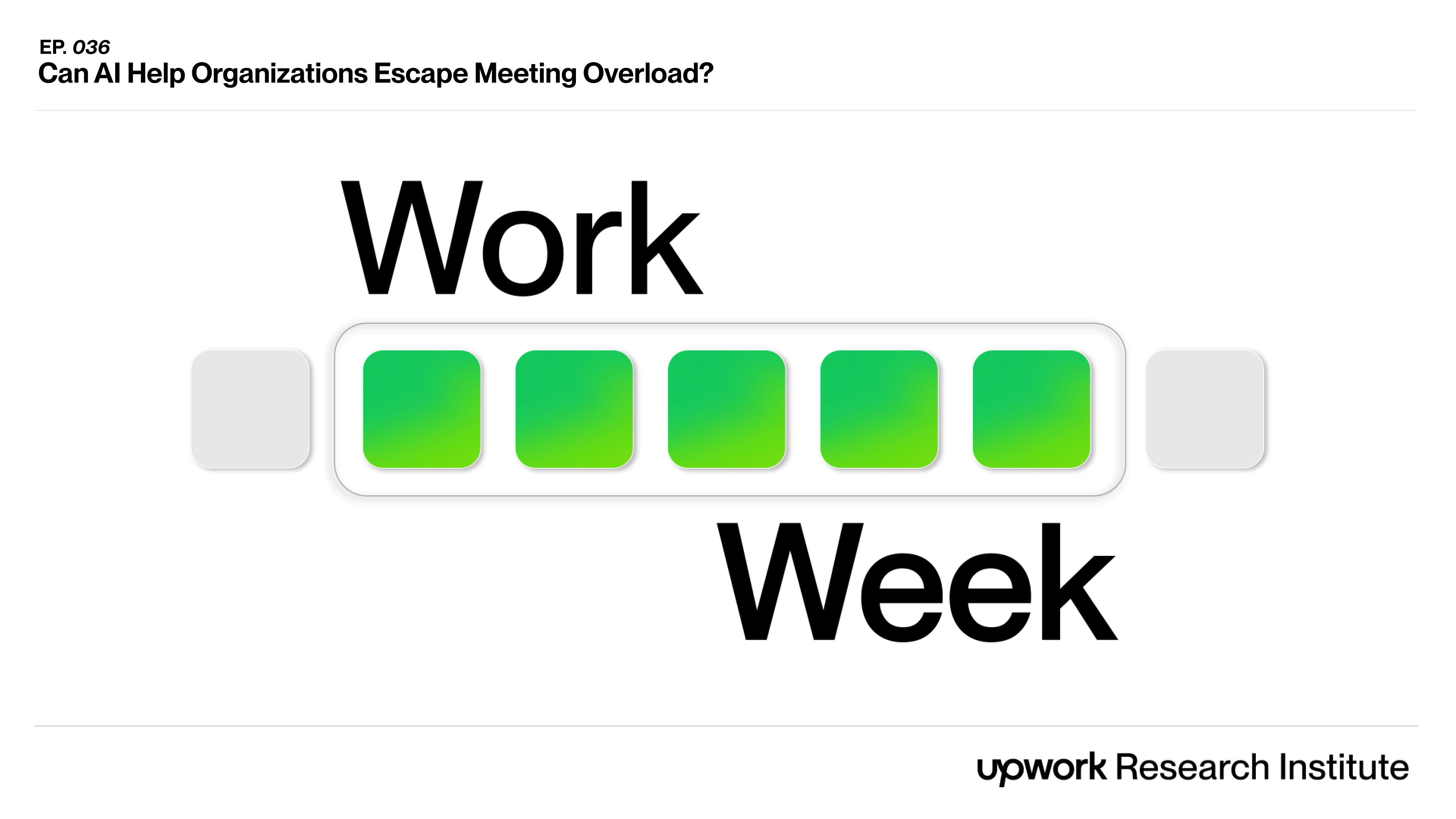

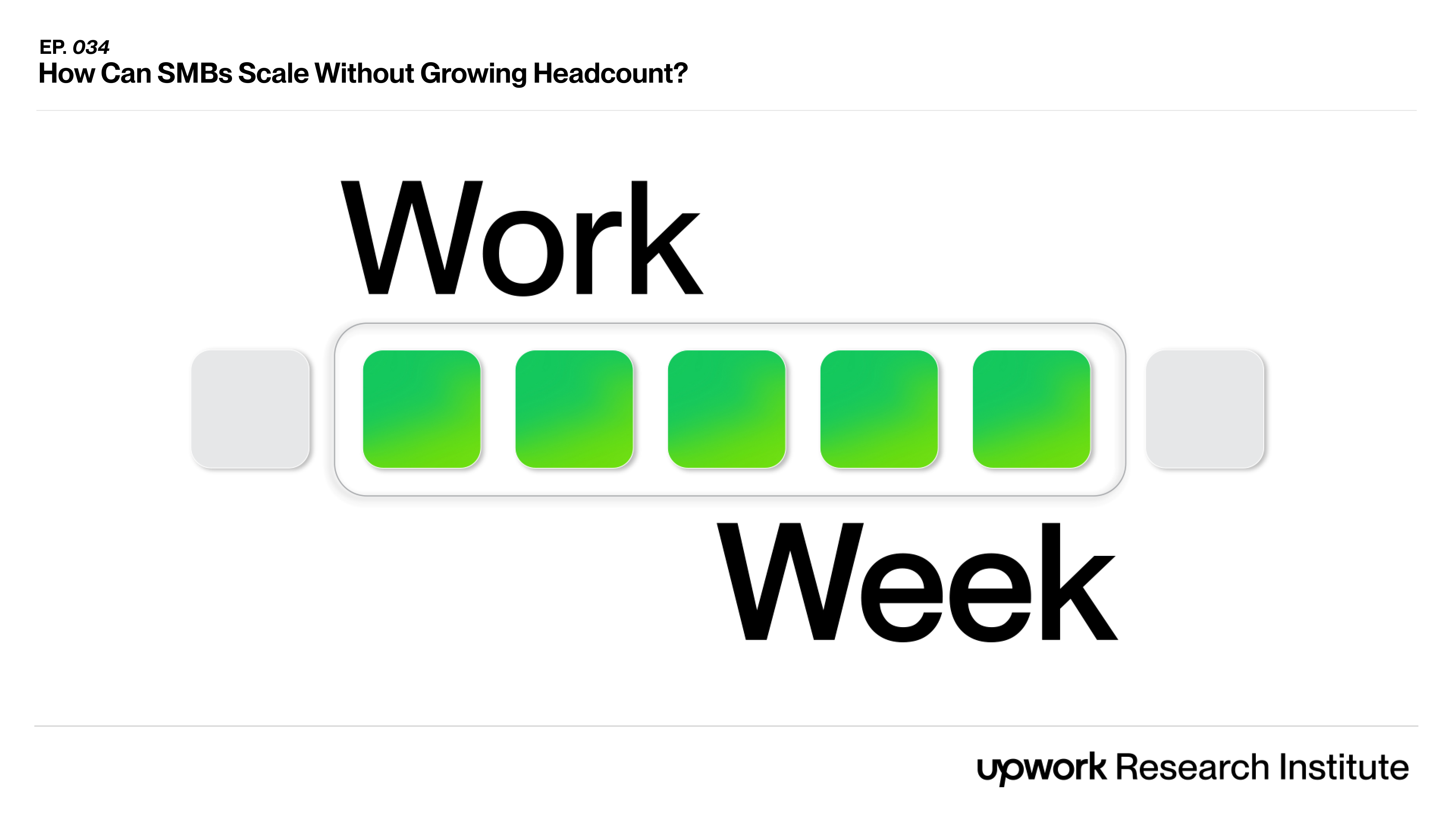
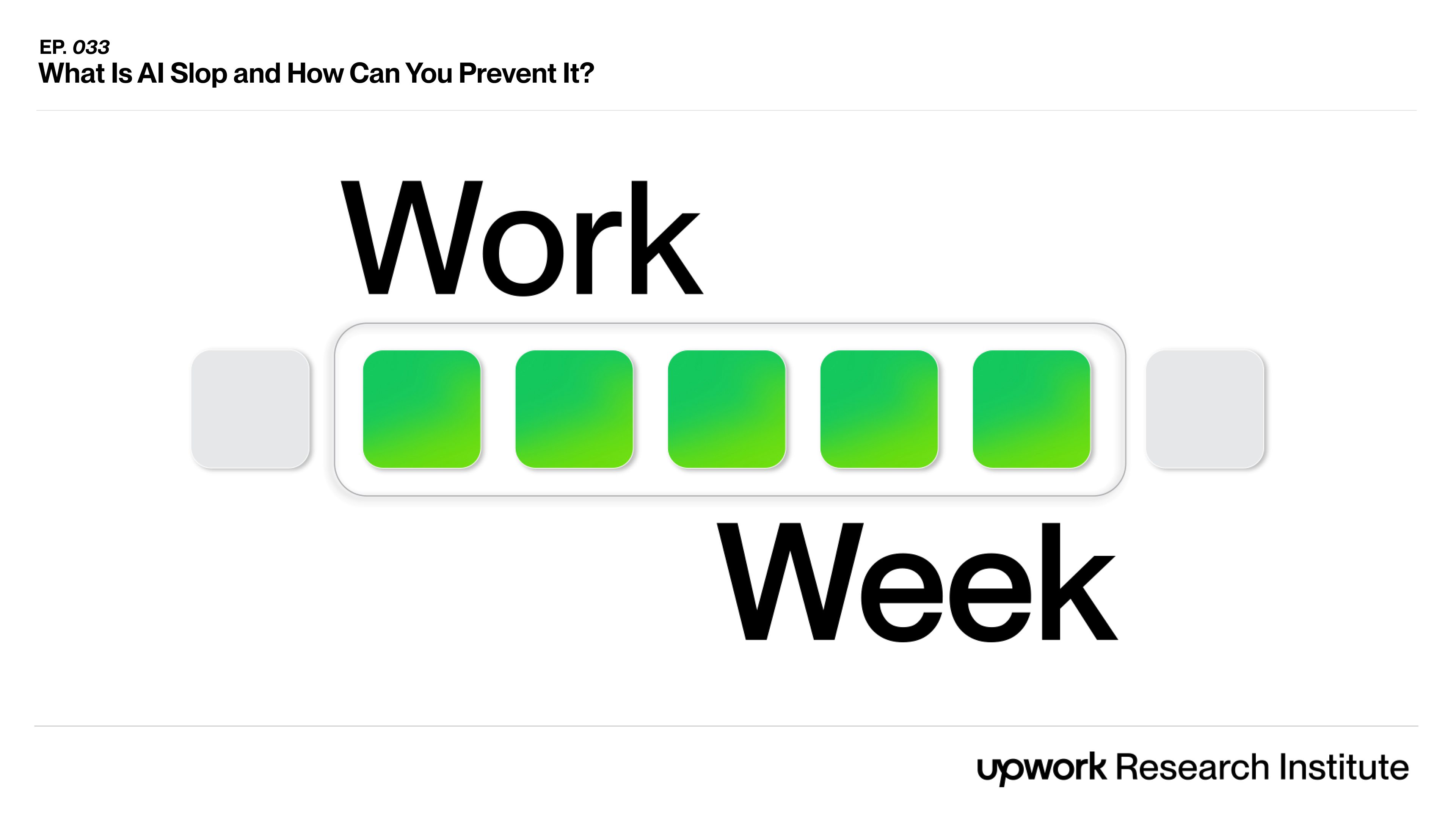
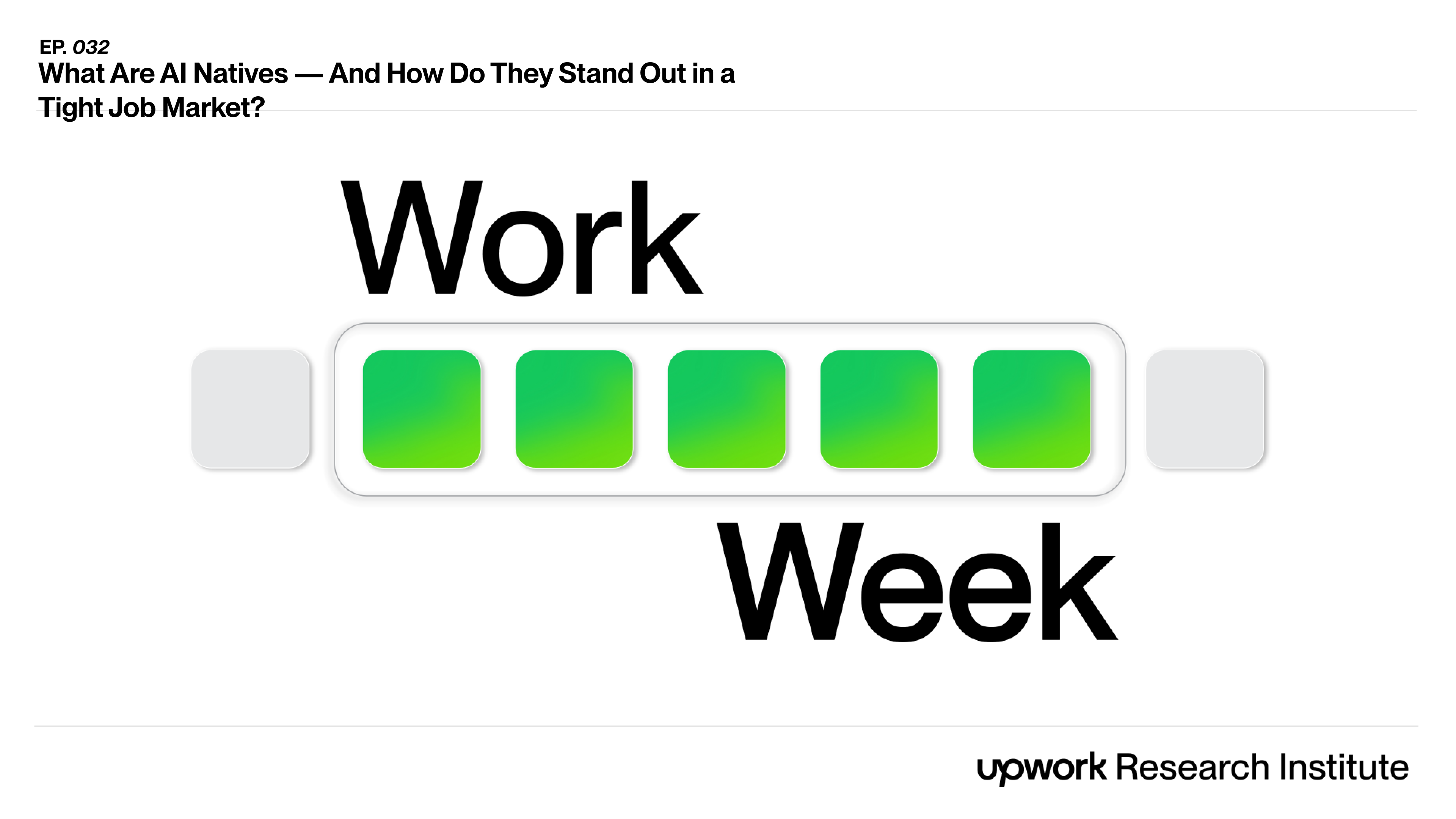
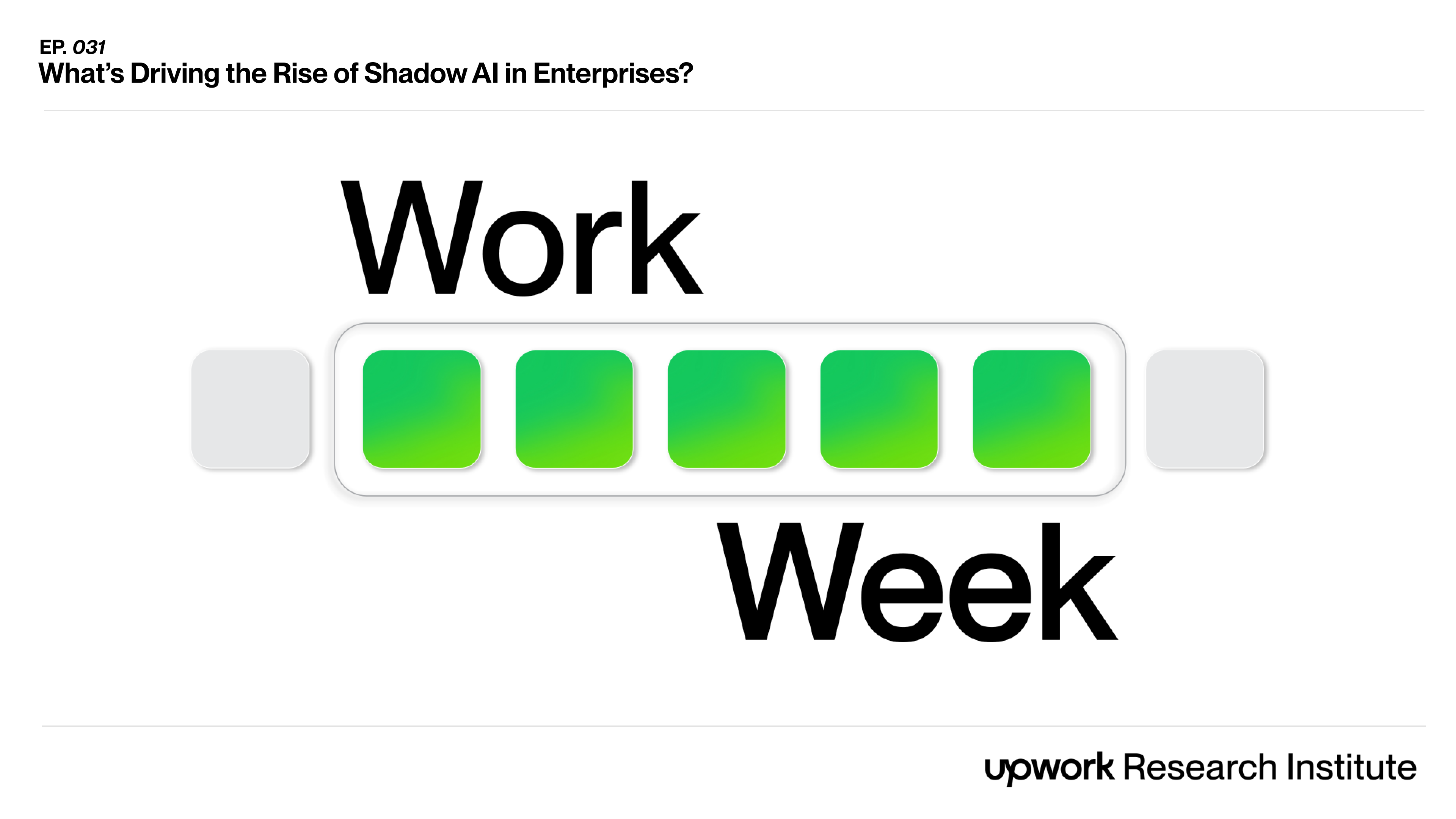
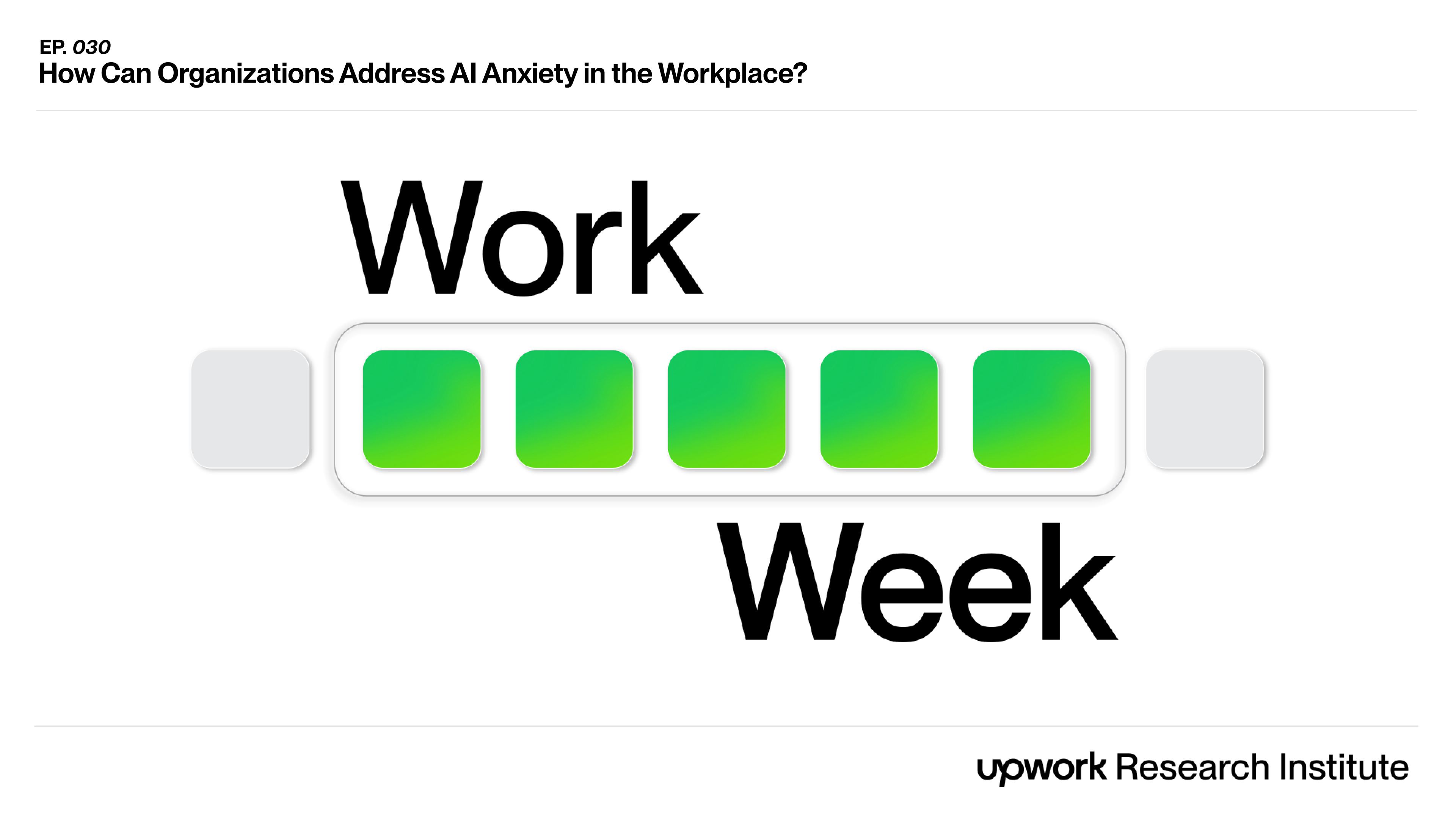
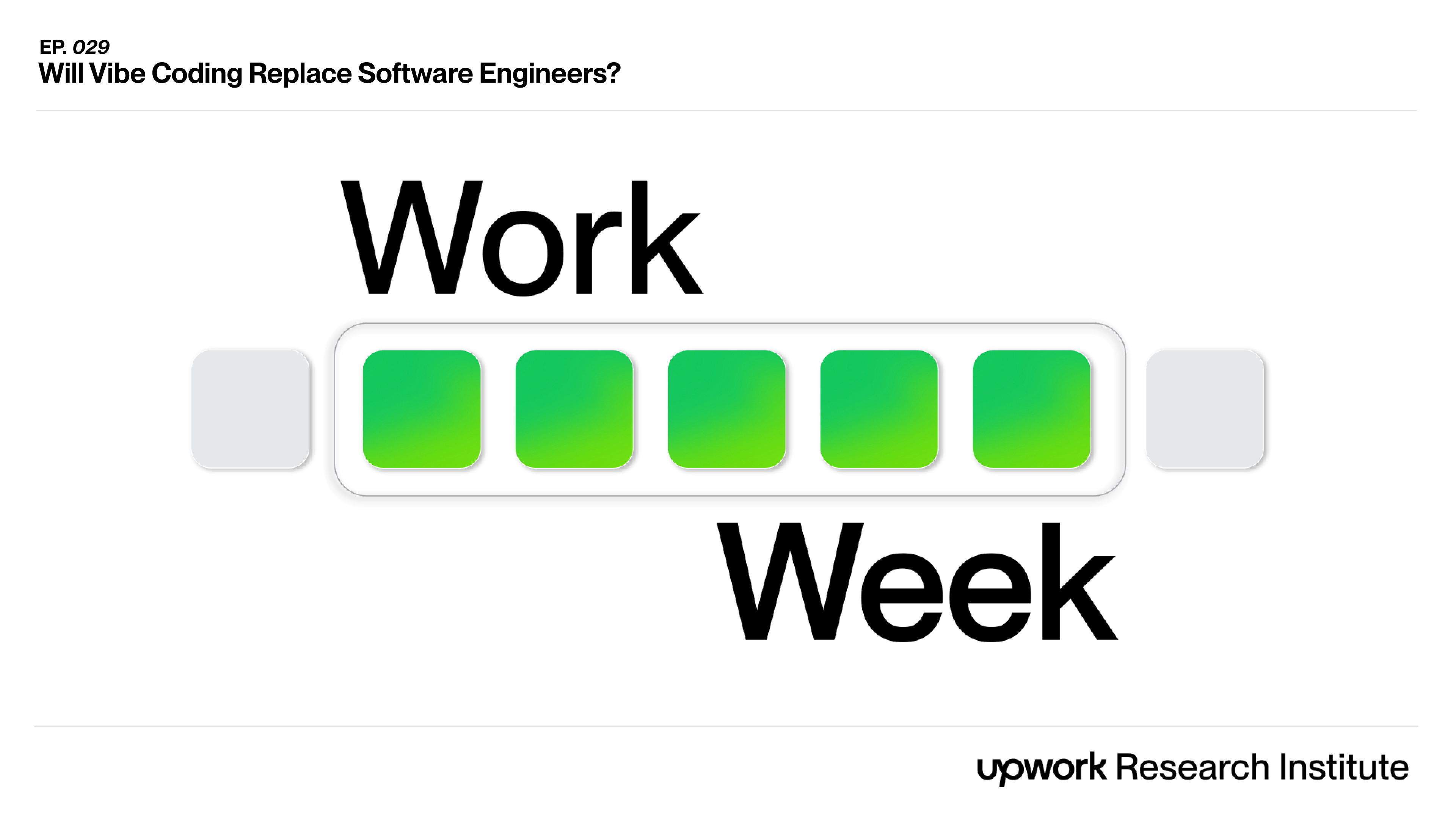
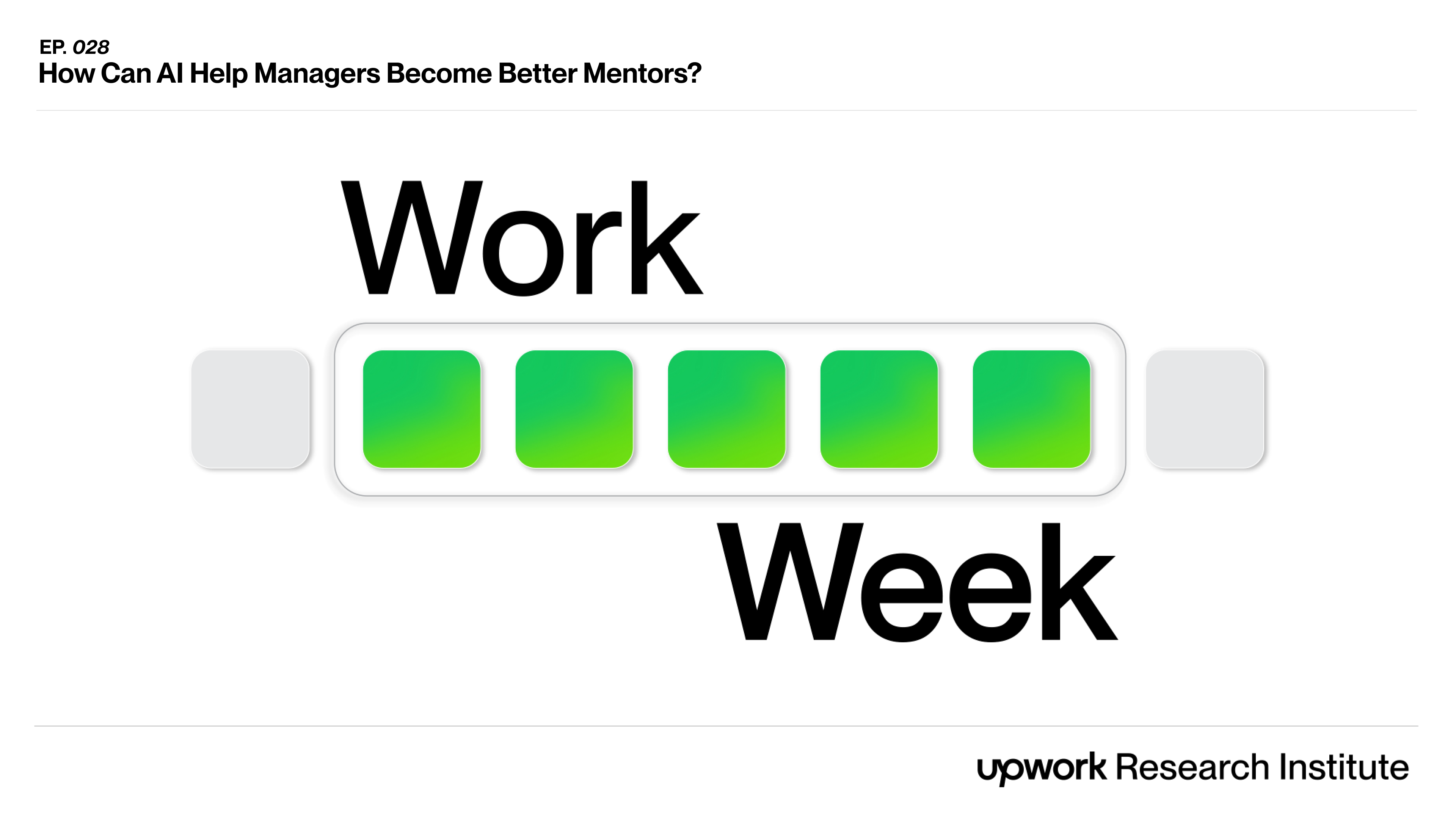
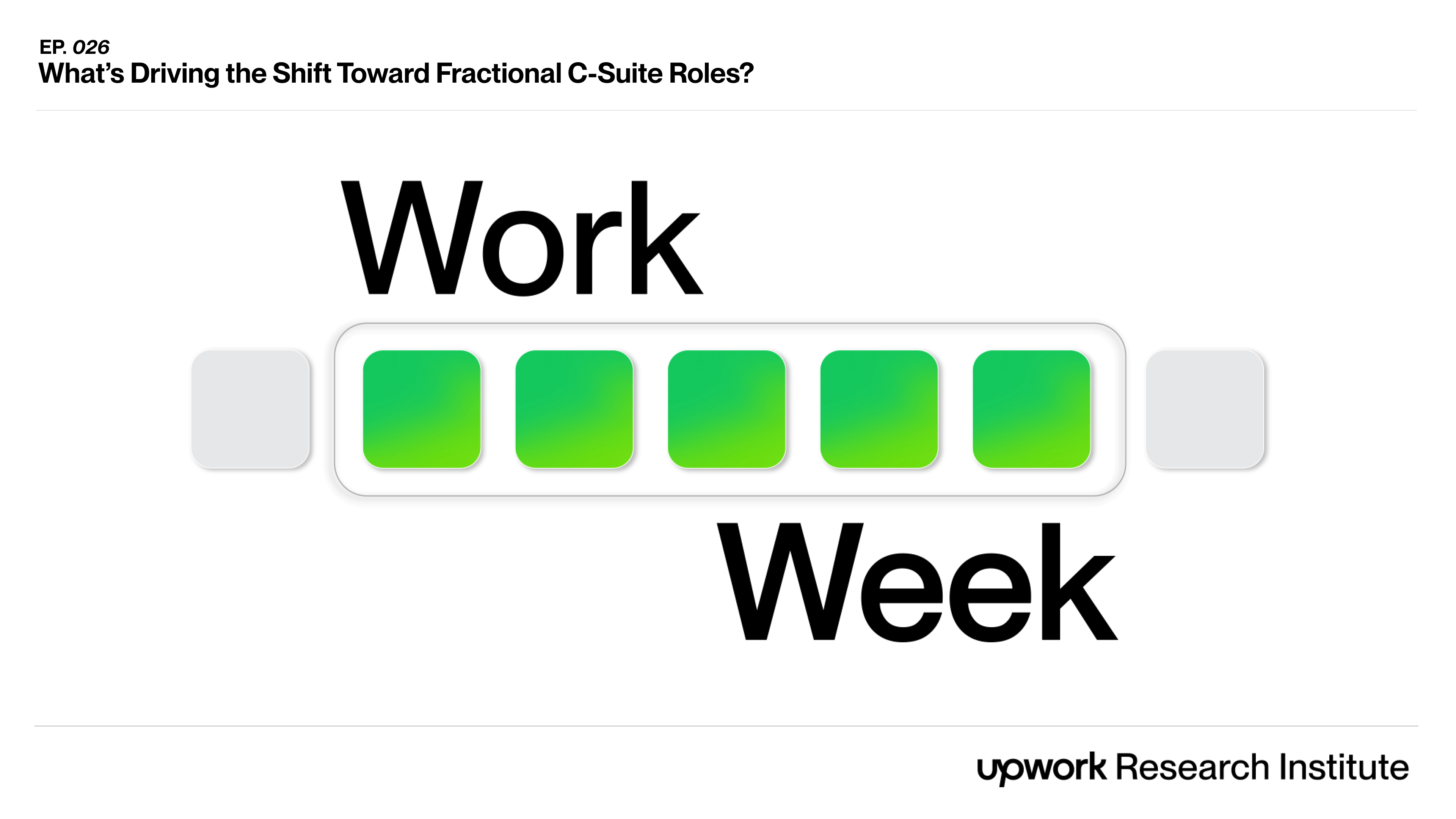
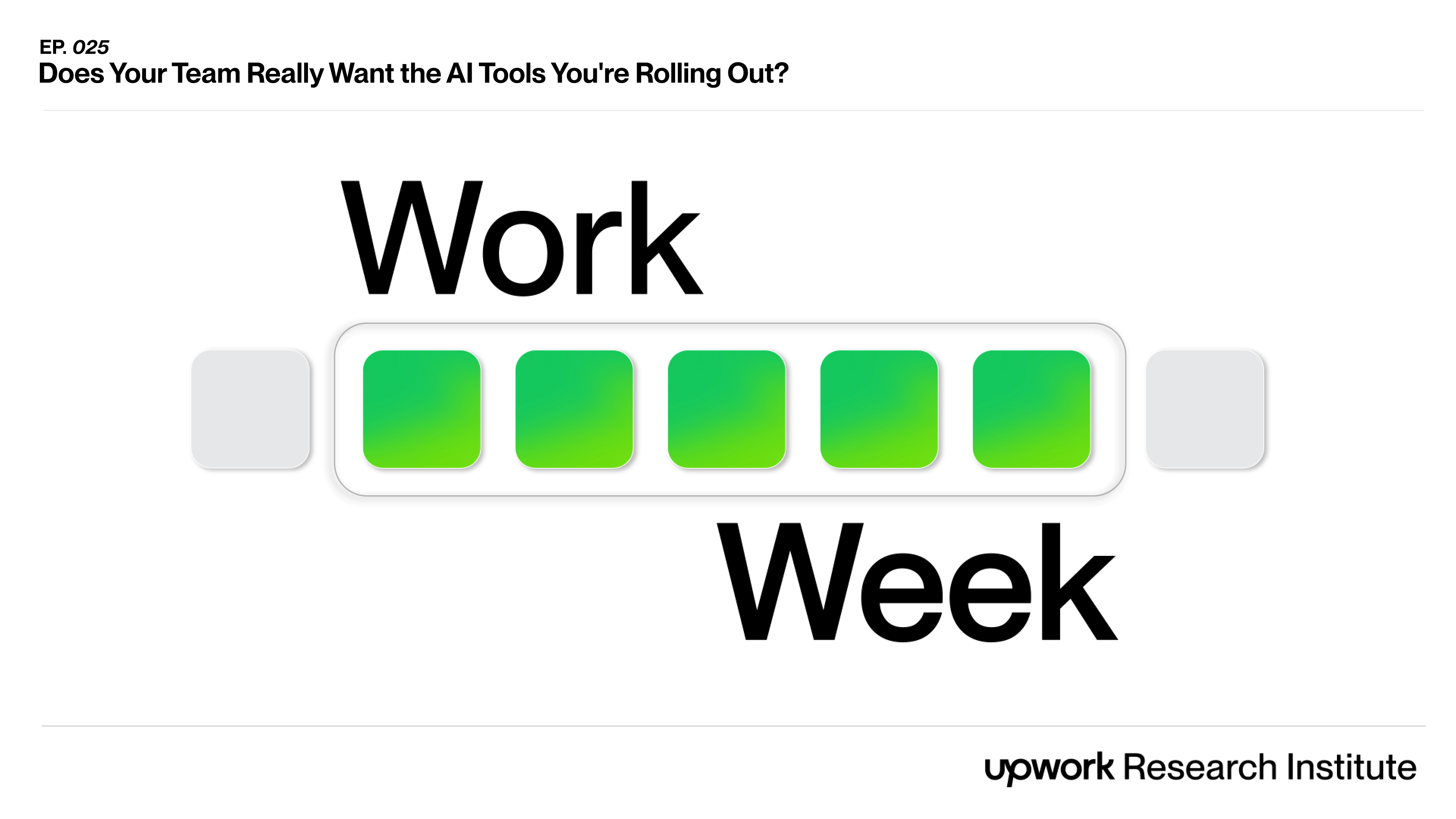
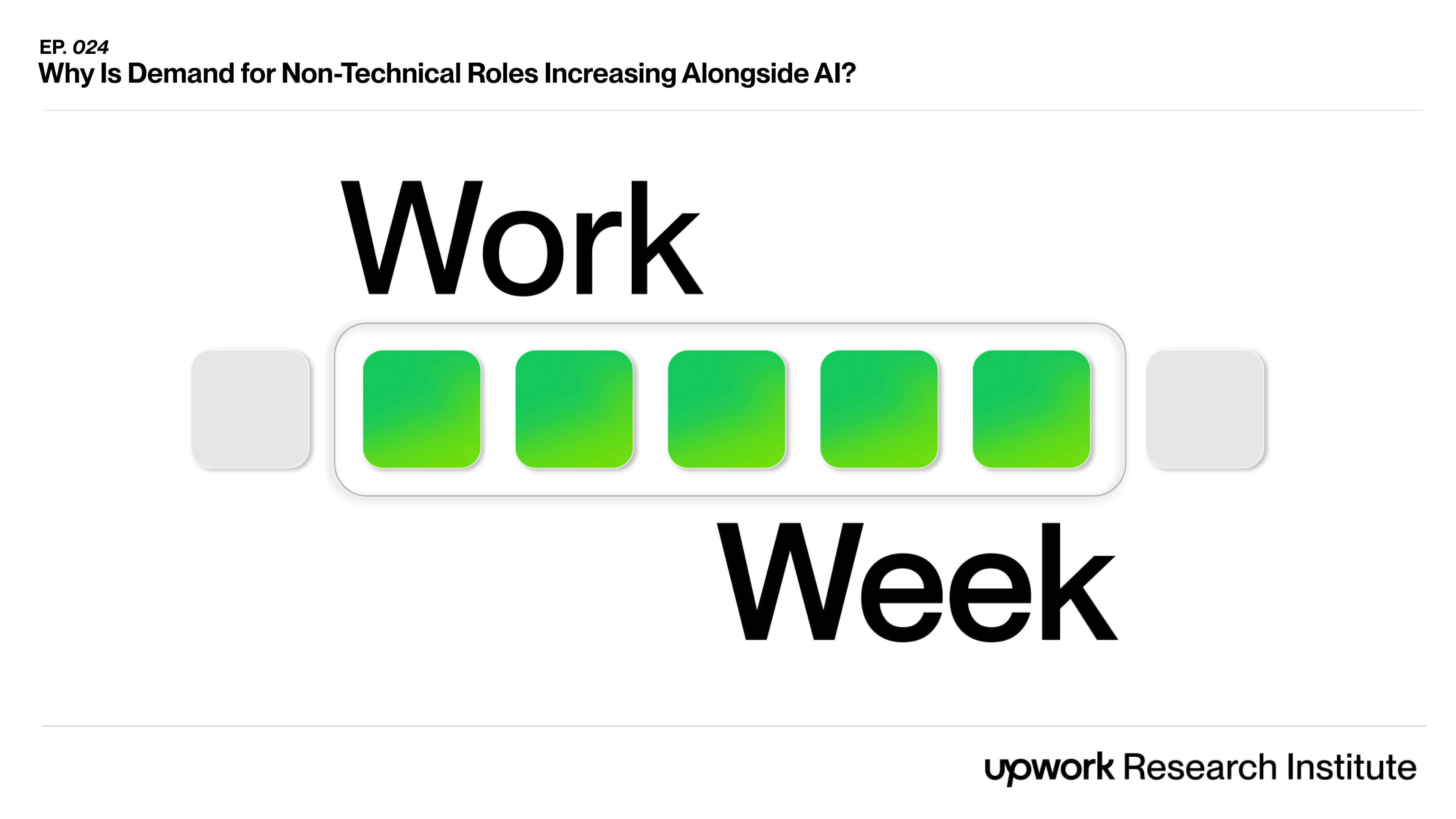
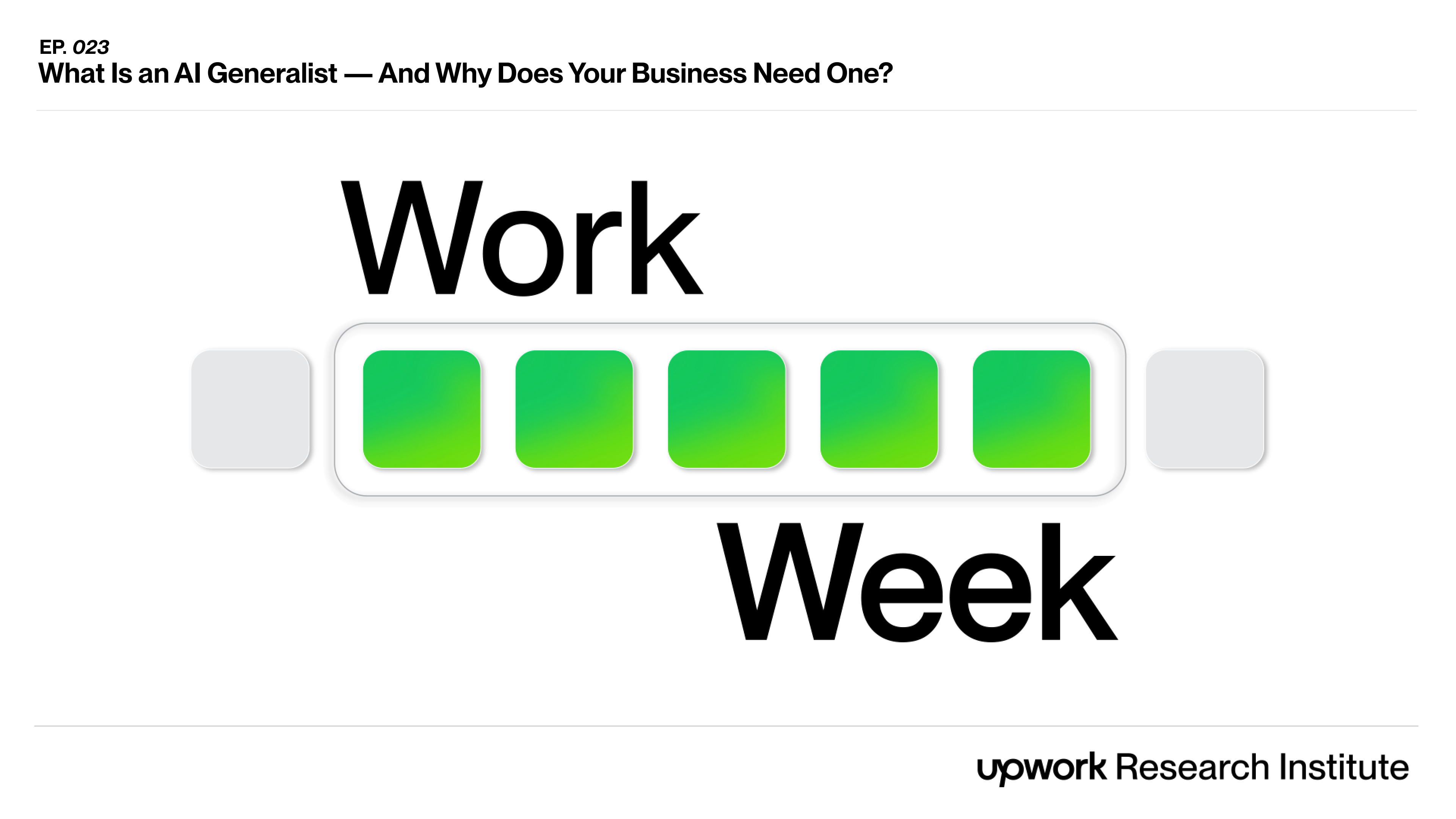
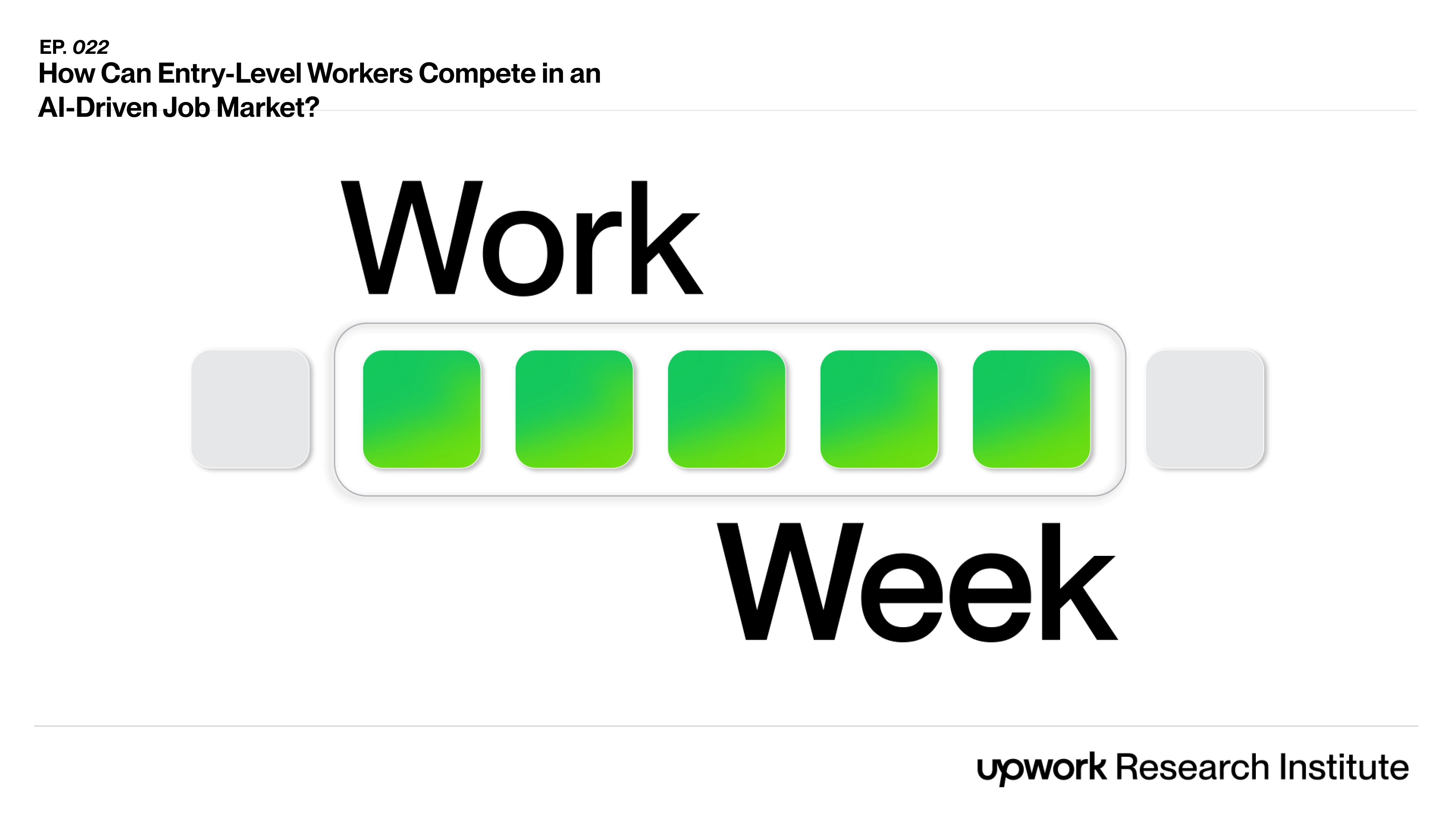

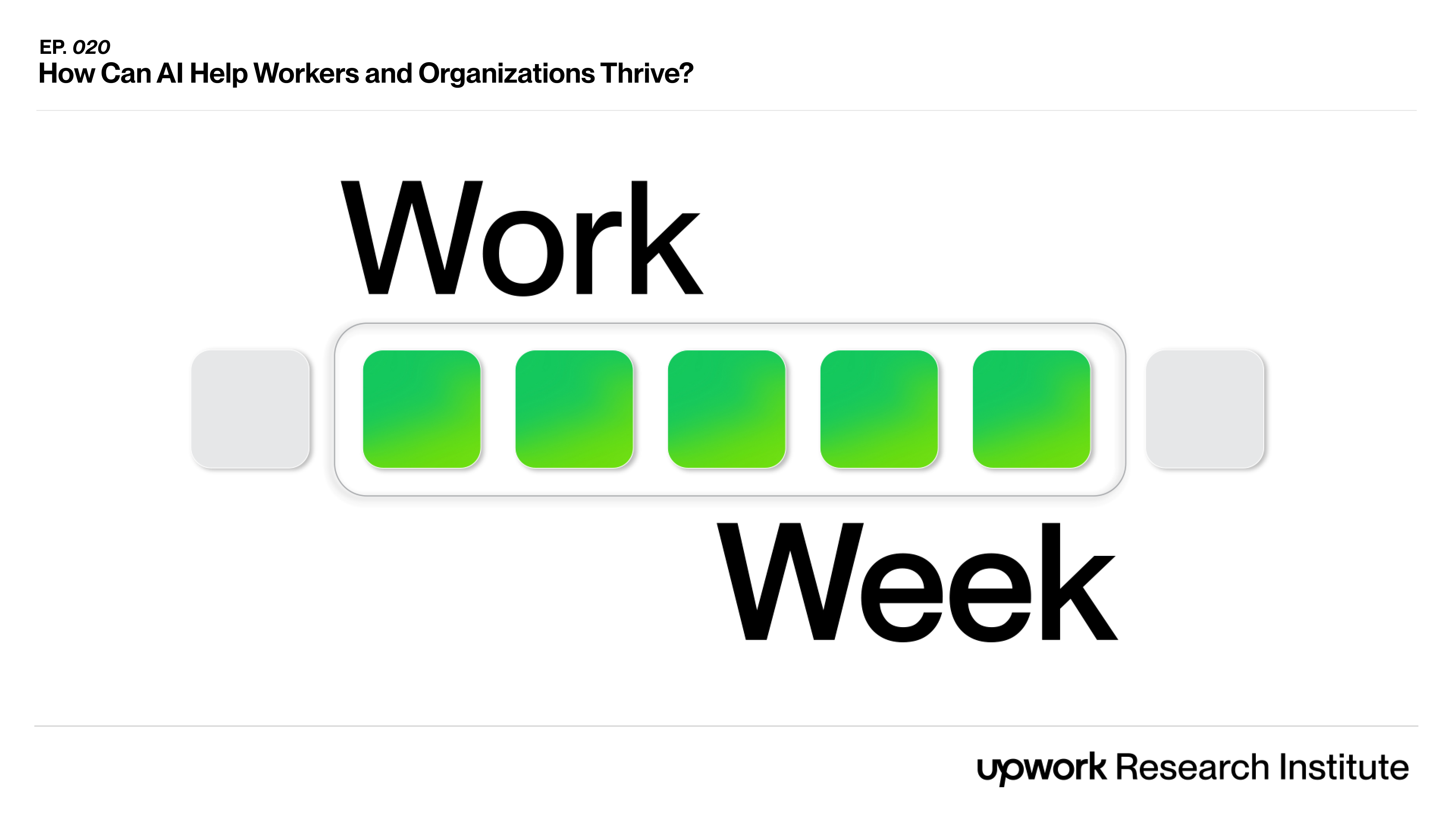
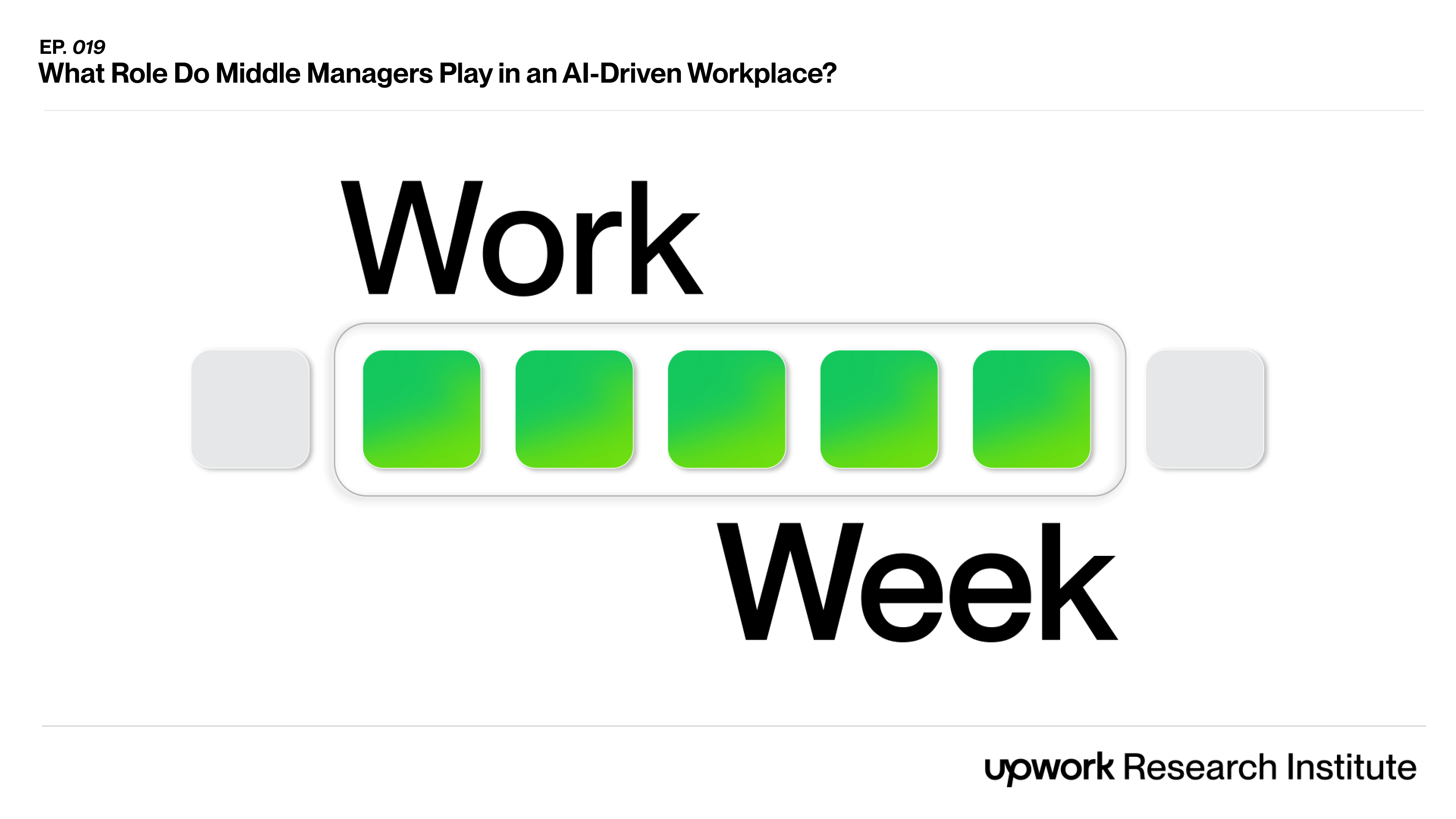
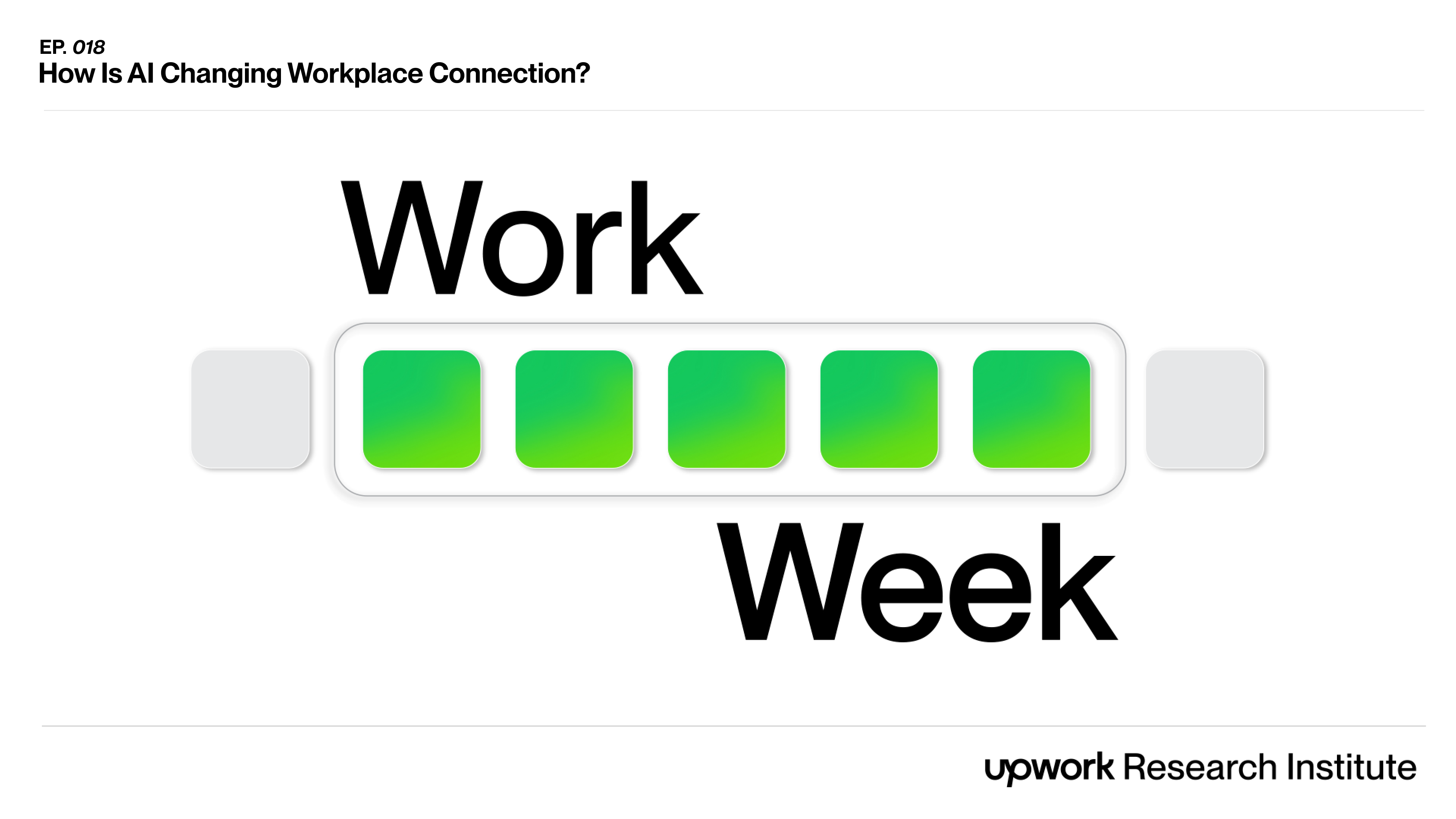

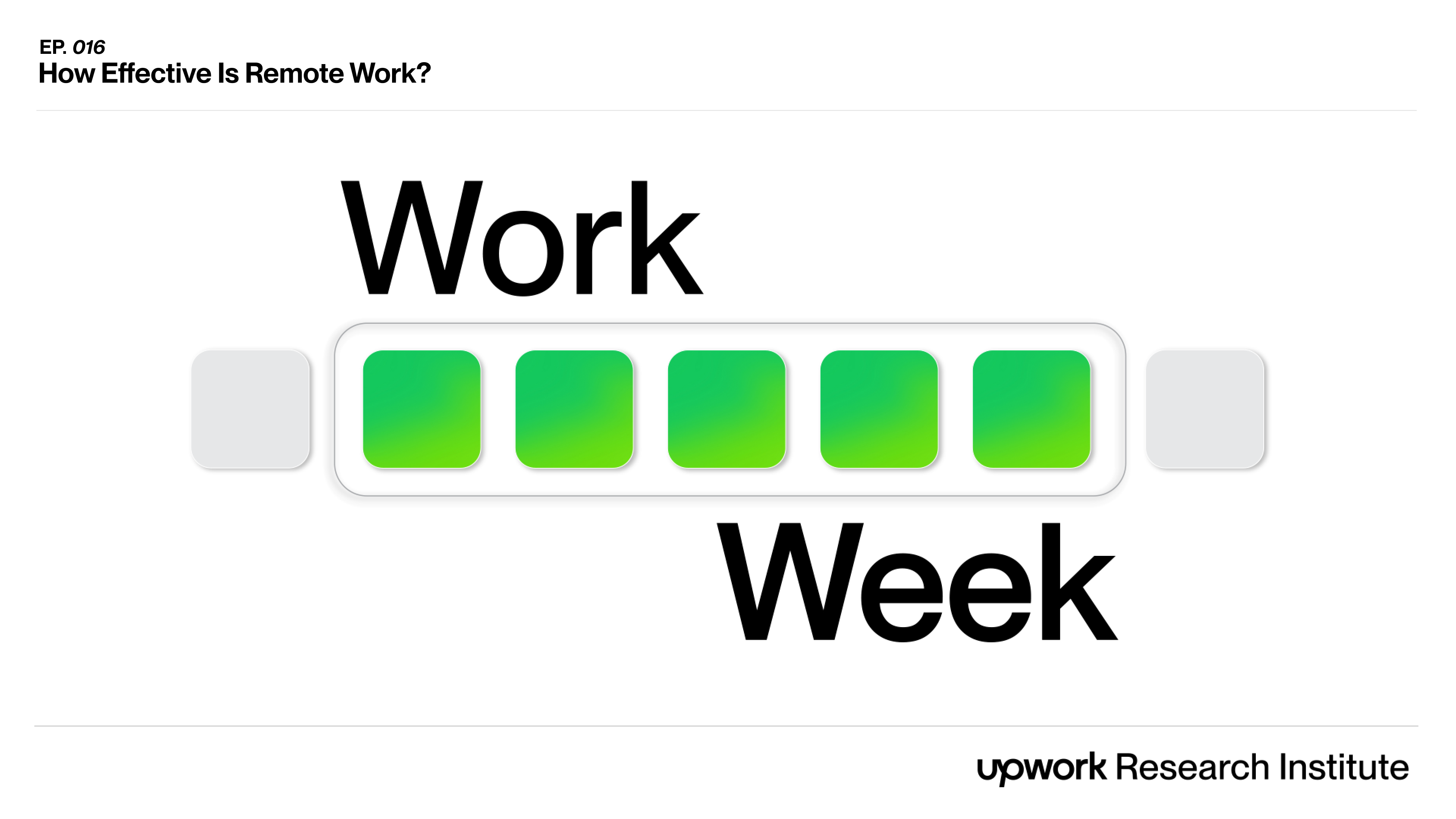
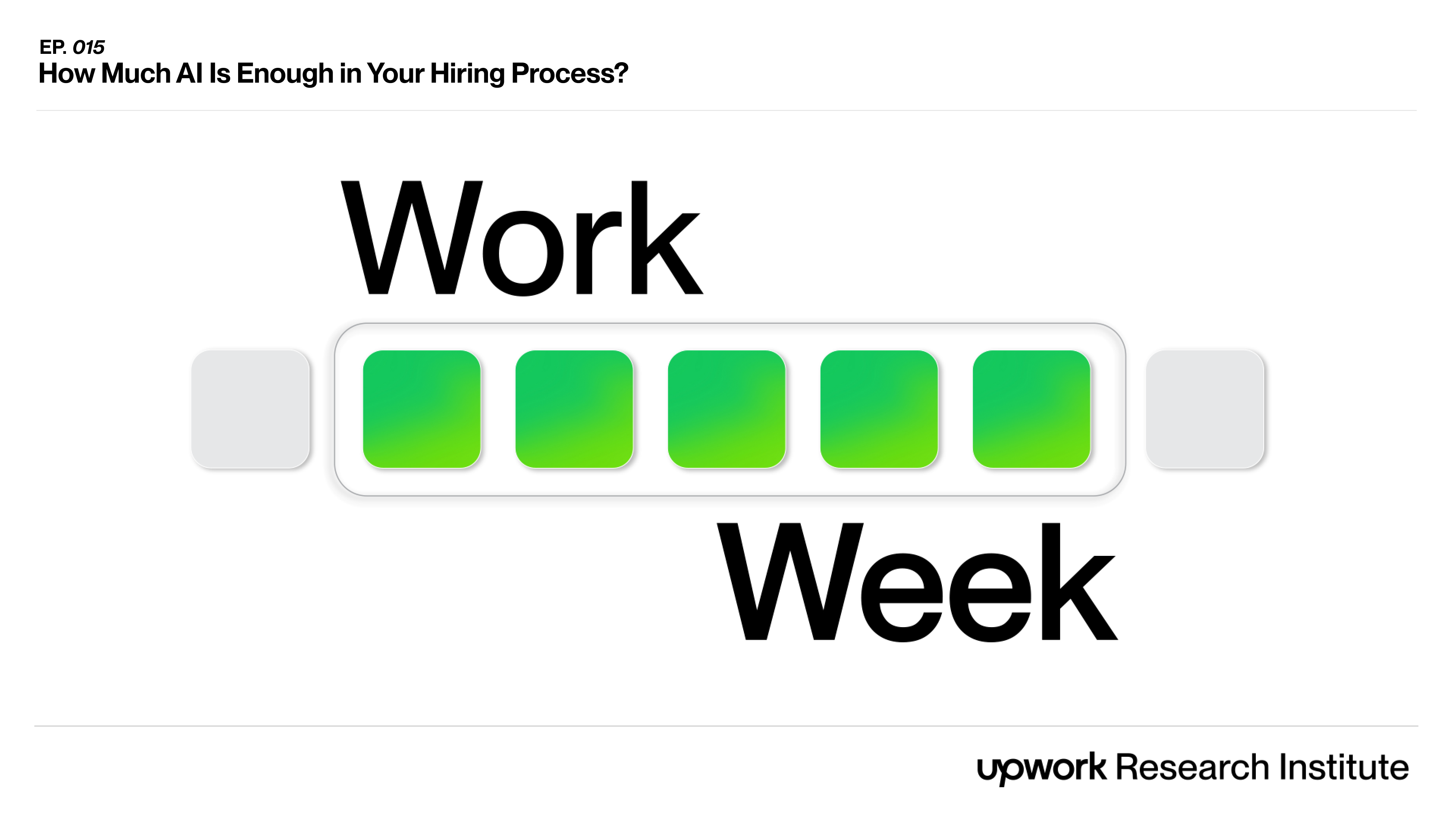

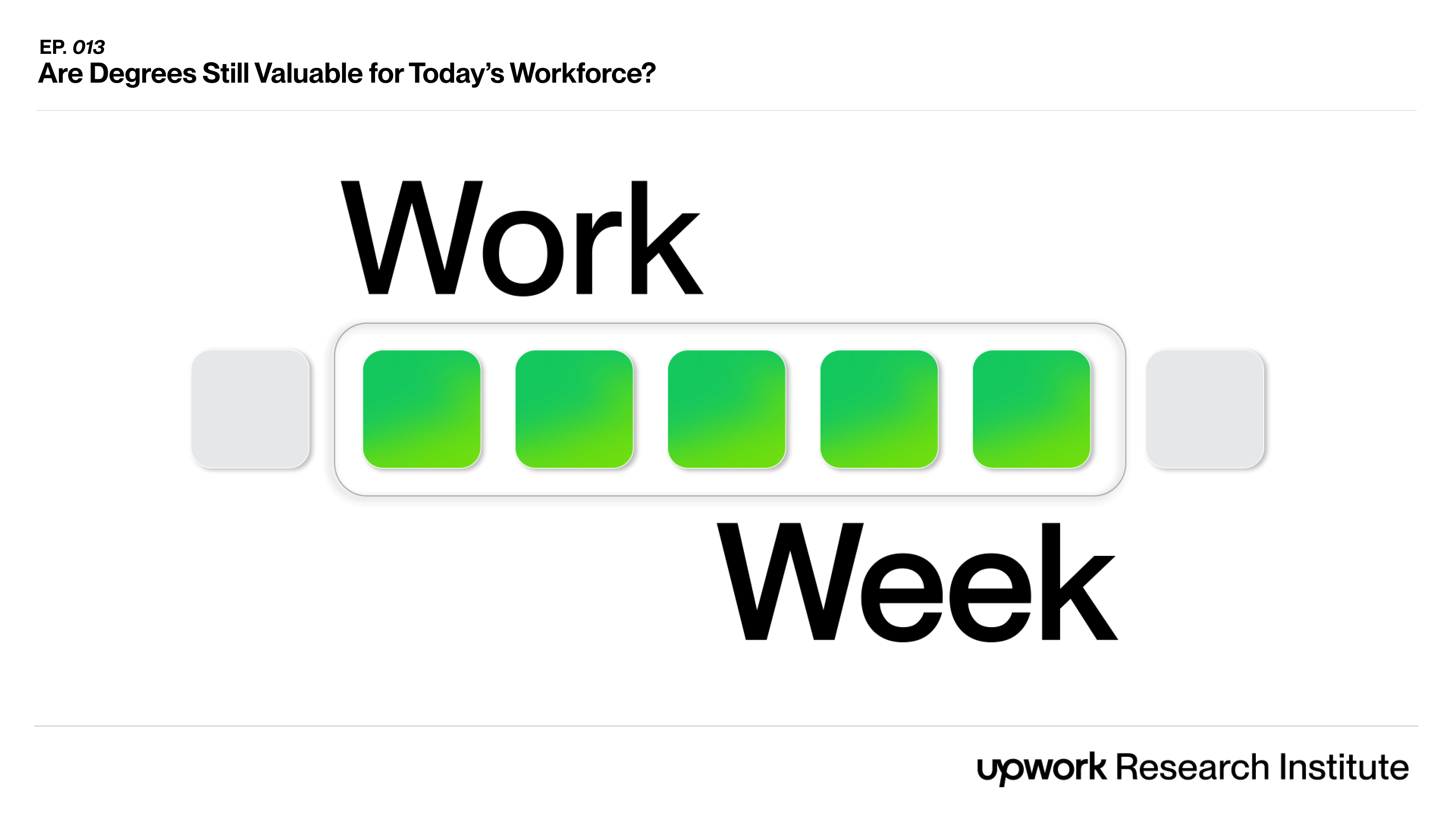
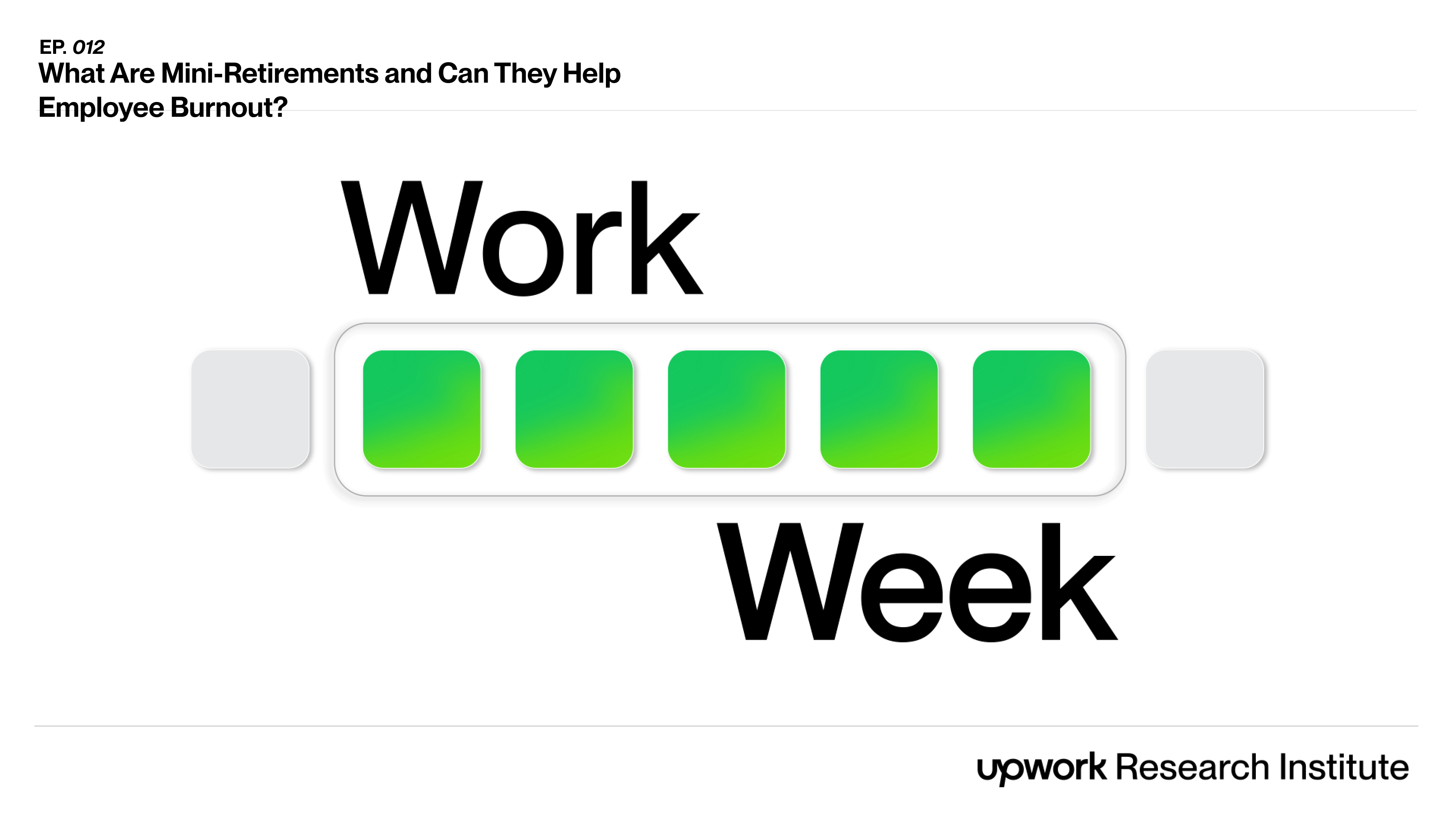
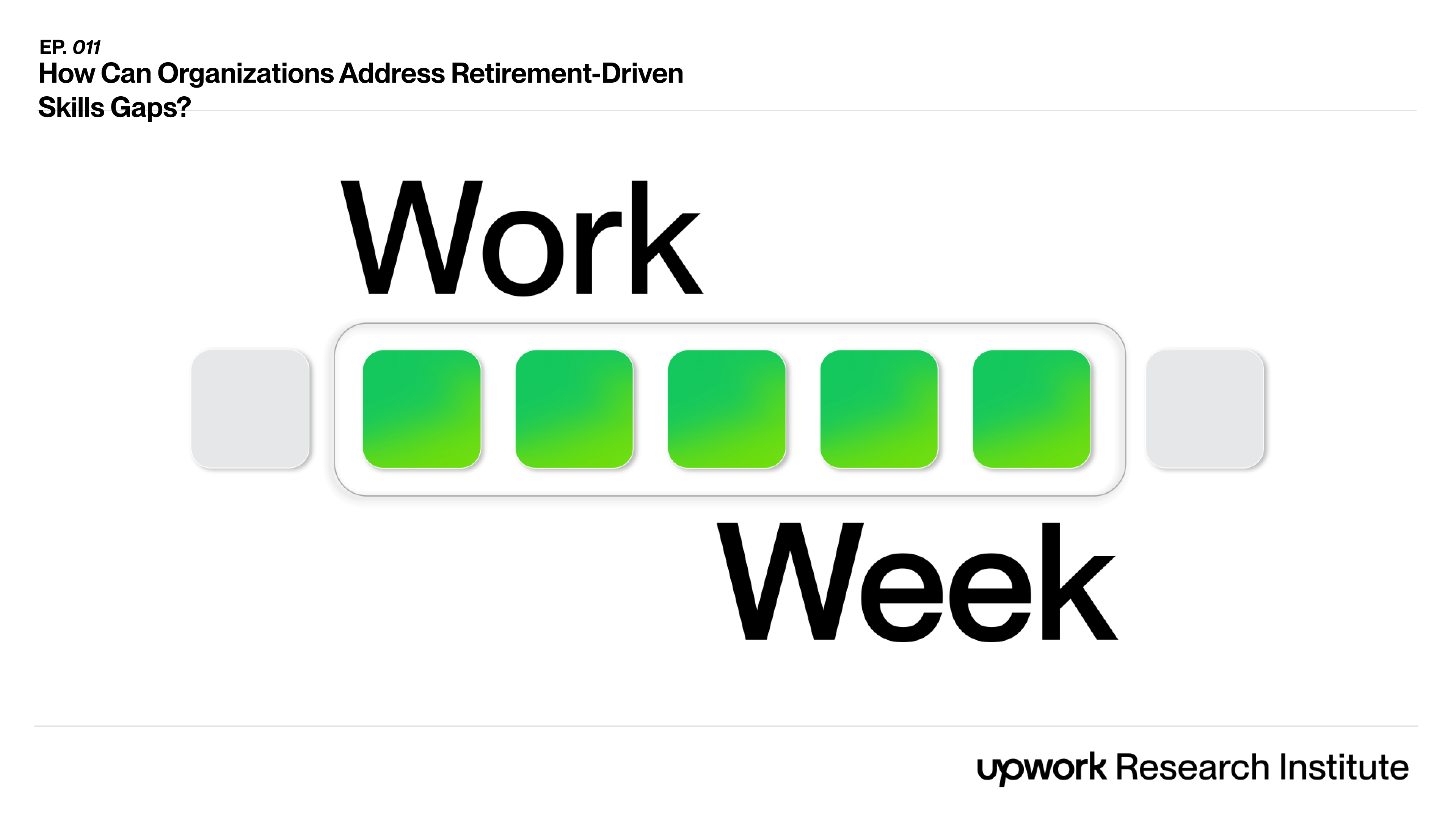
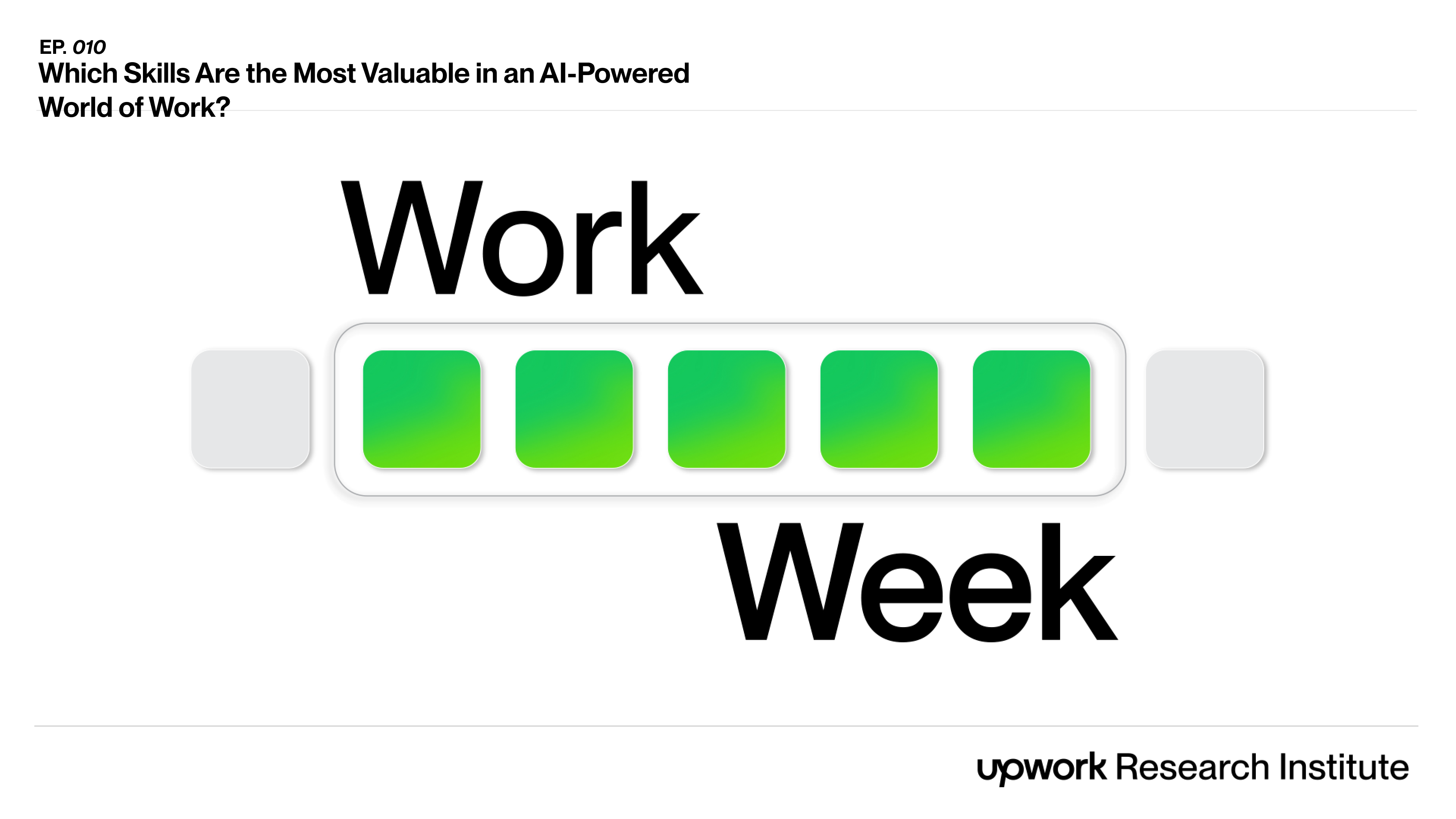
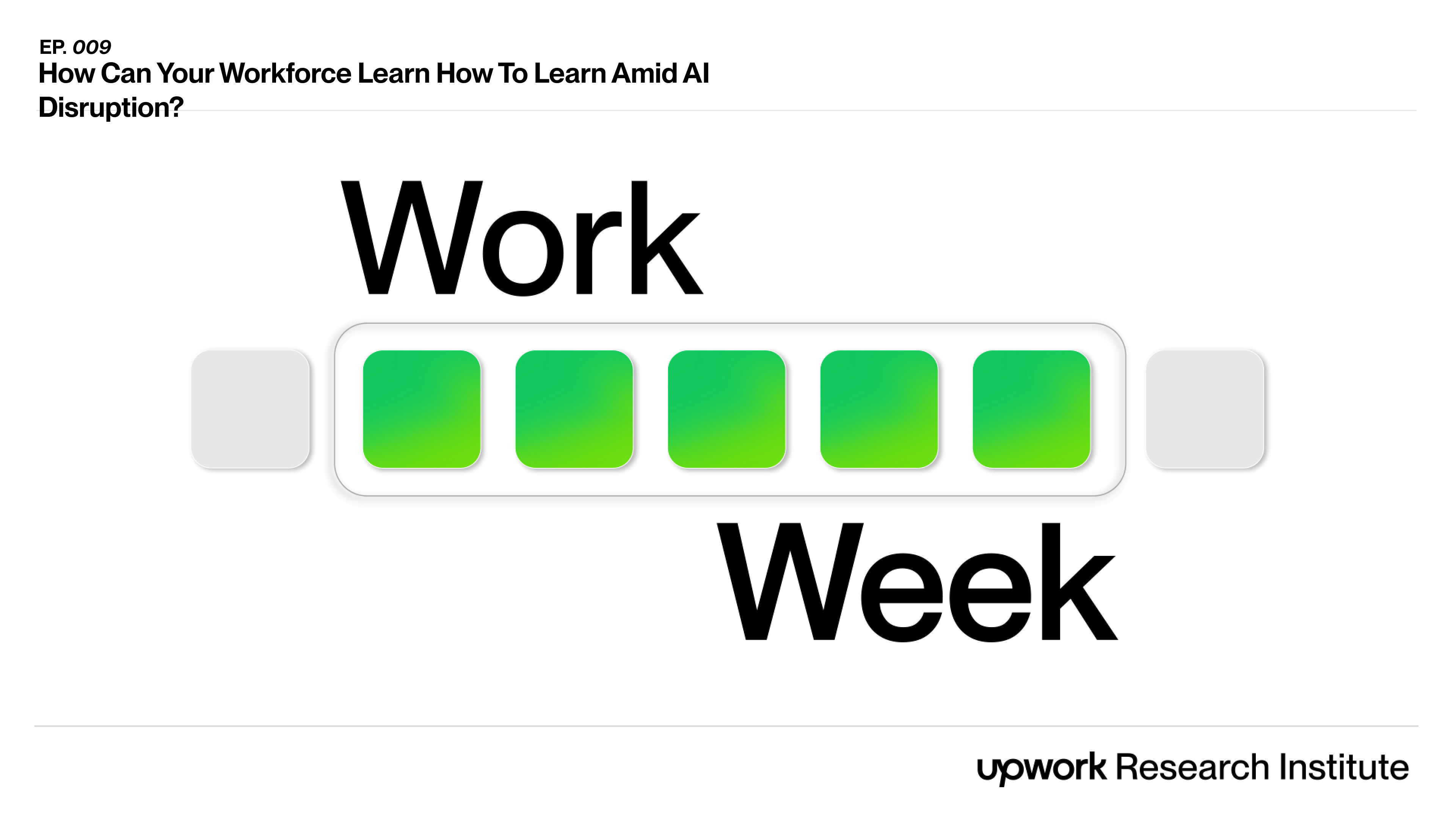
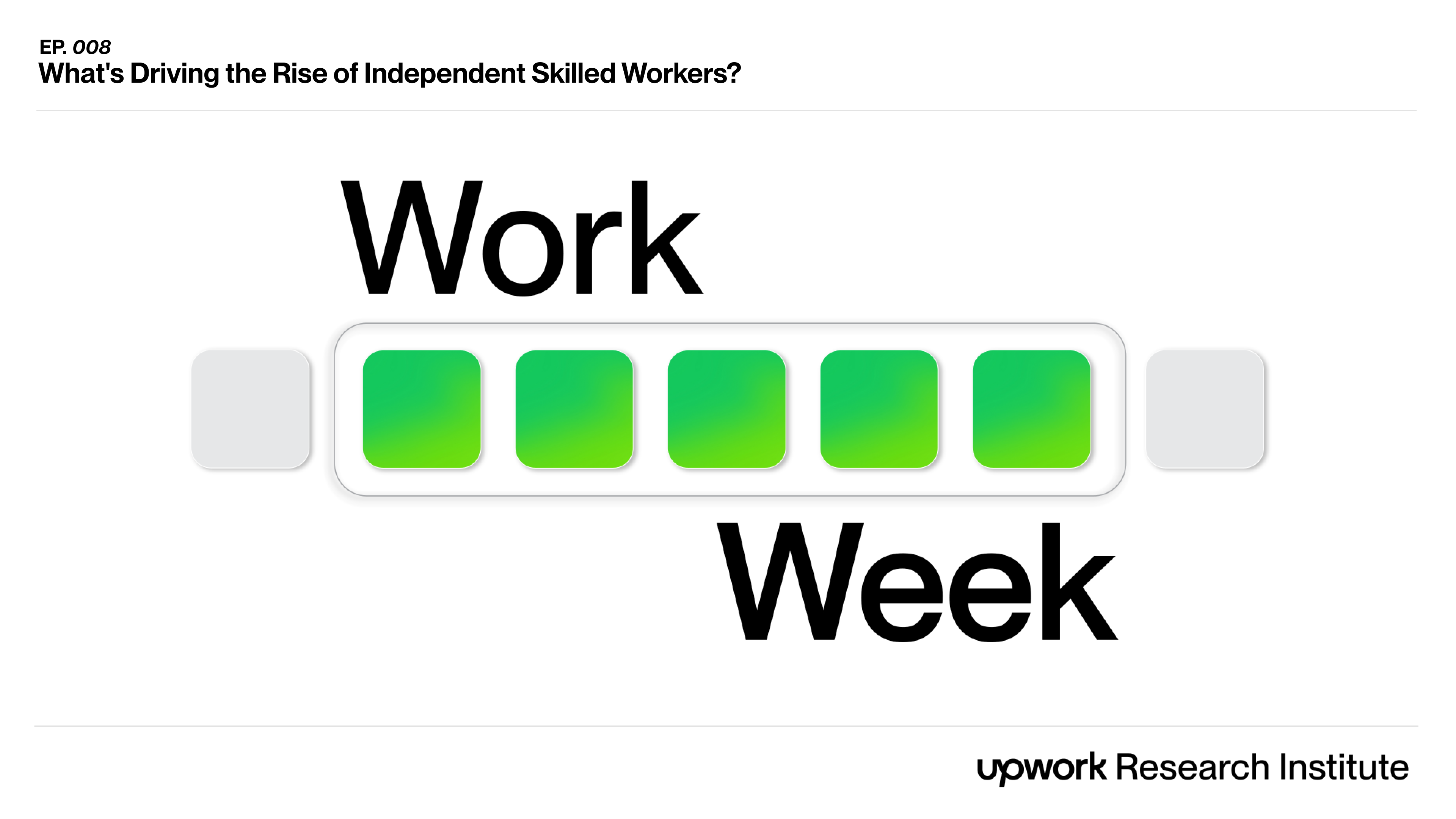
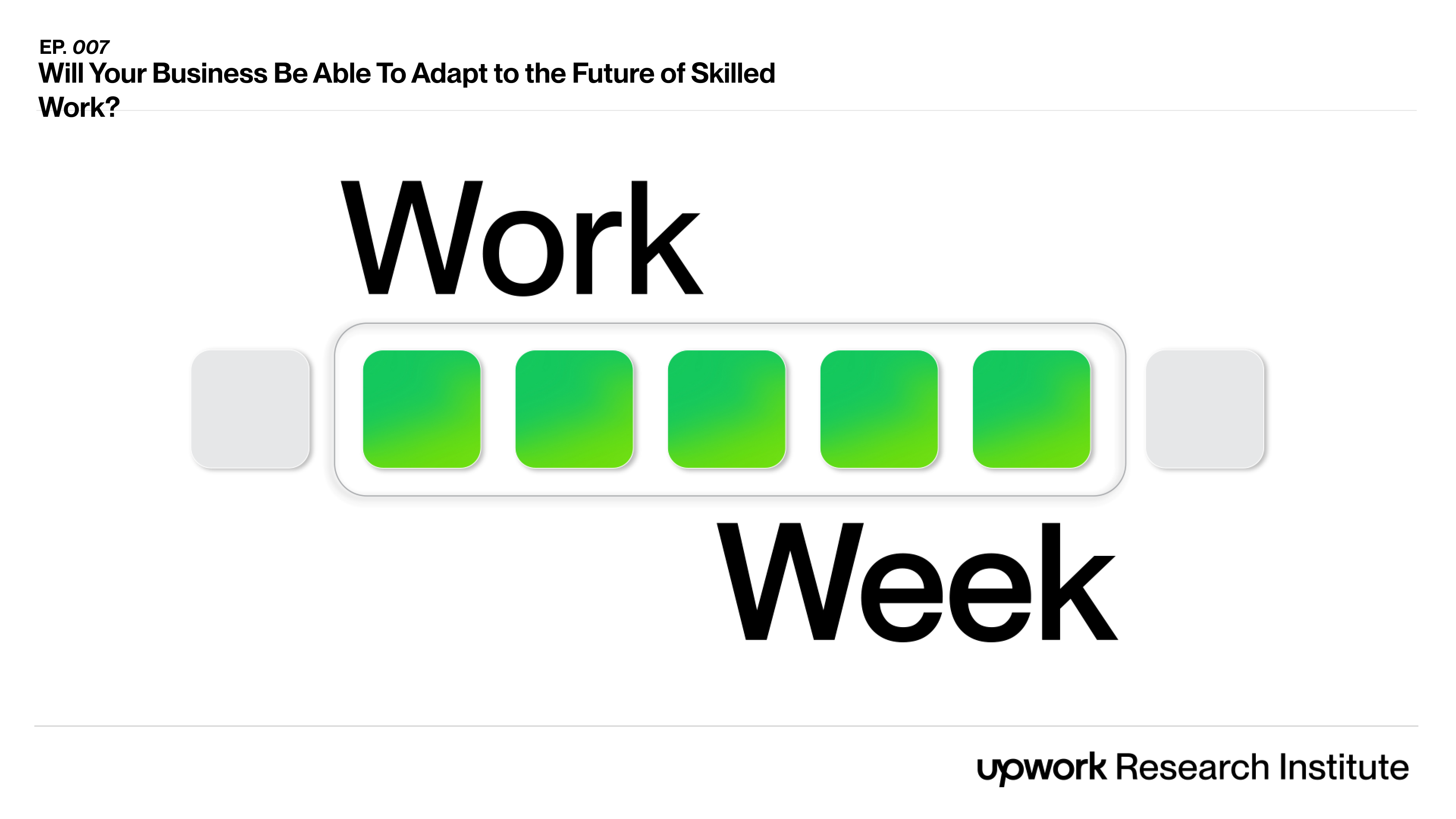
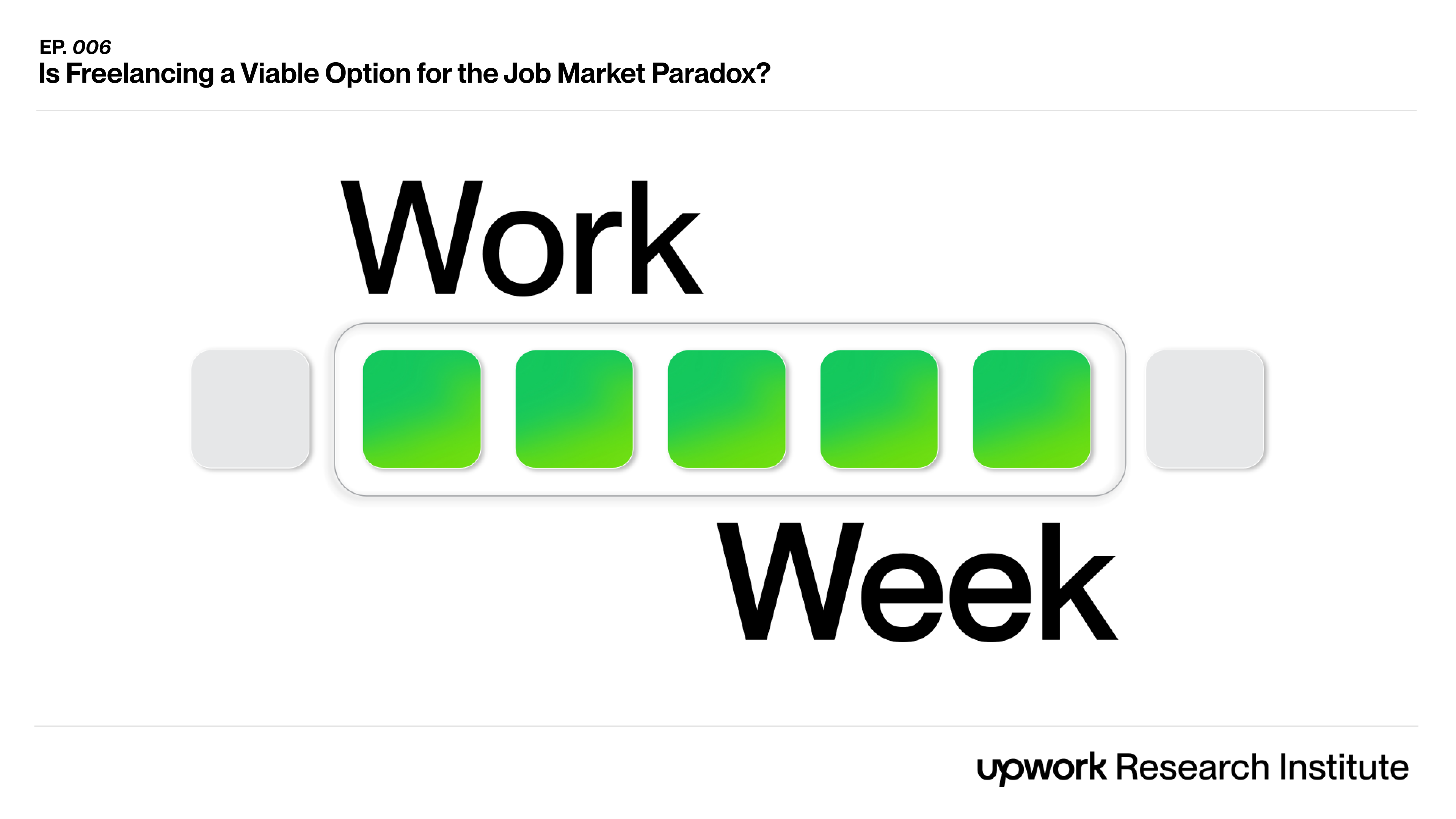
.png)
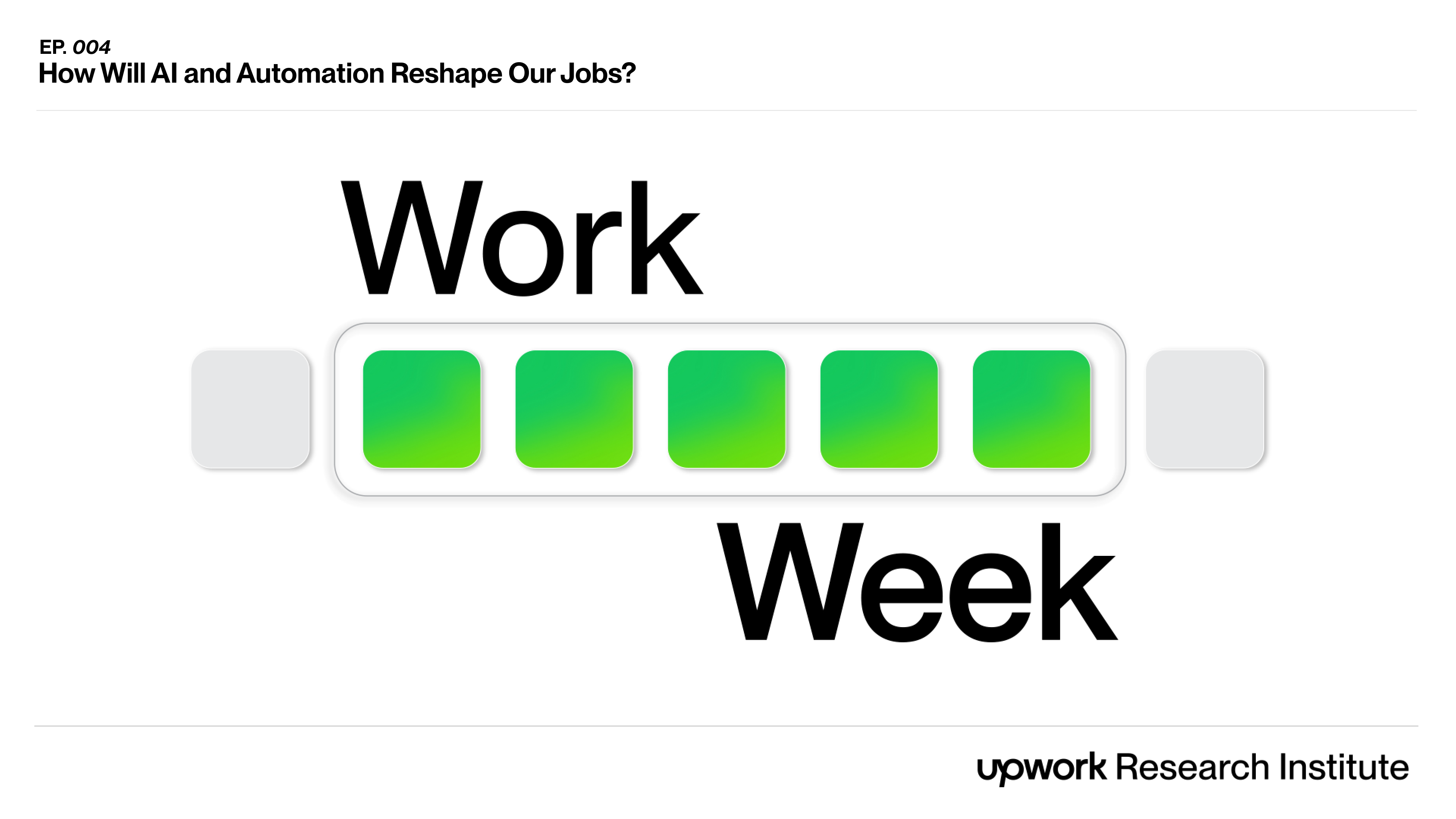

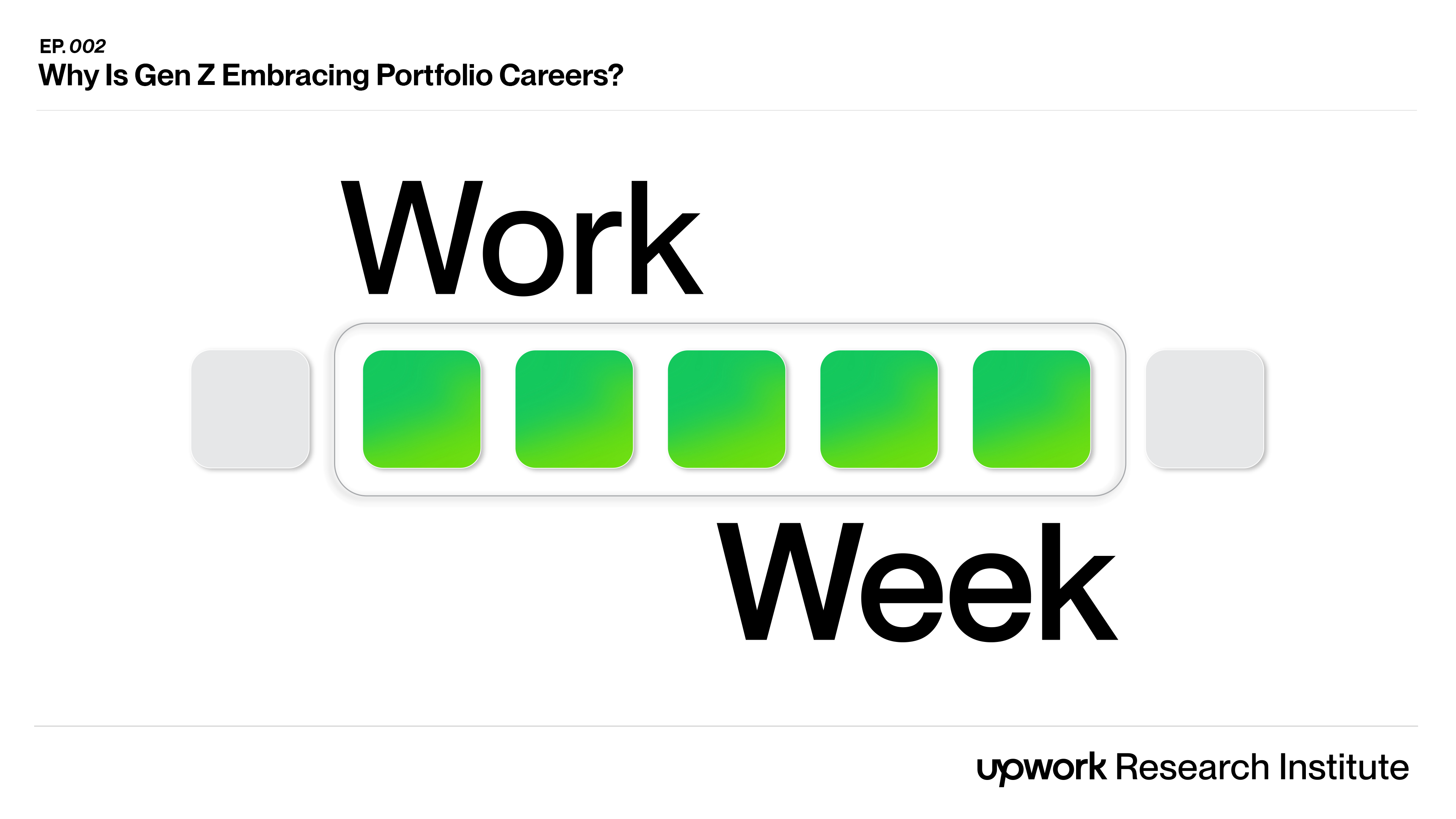
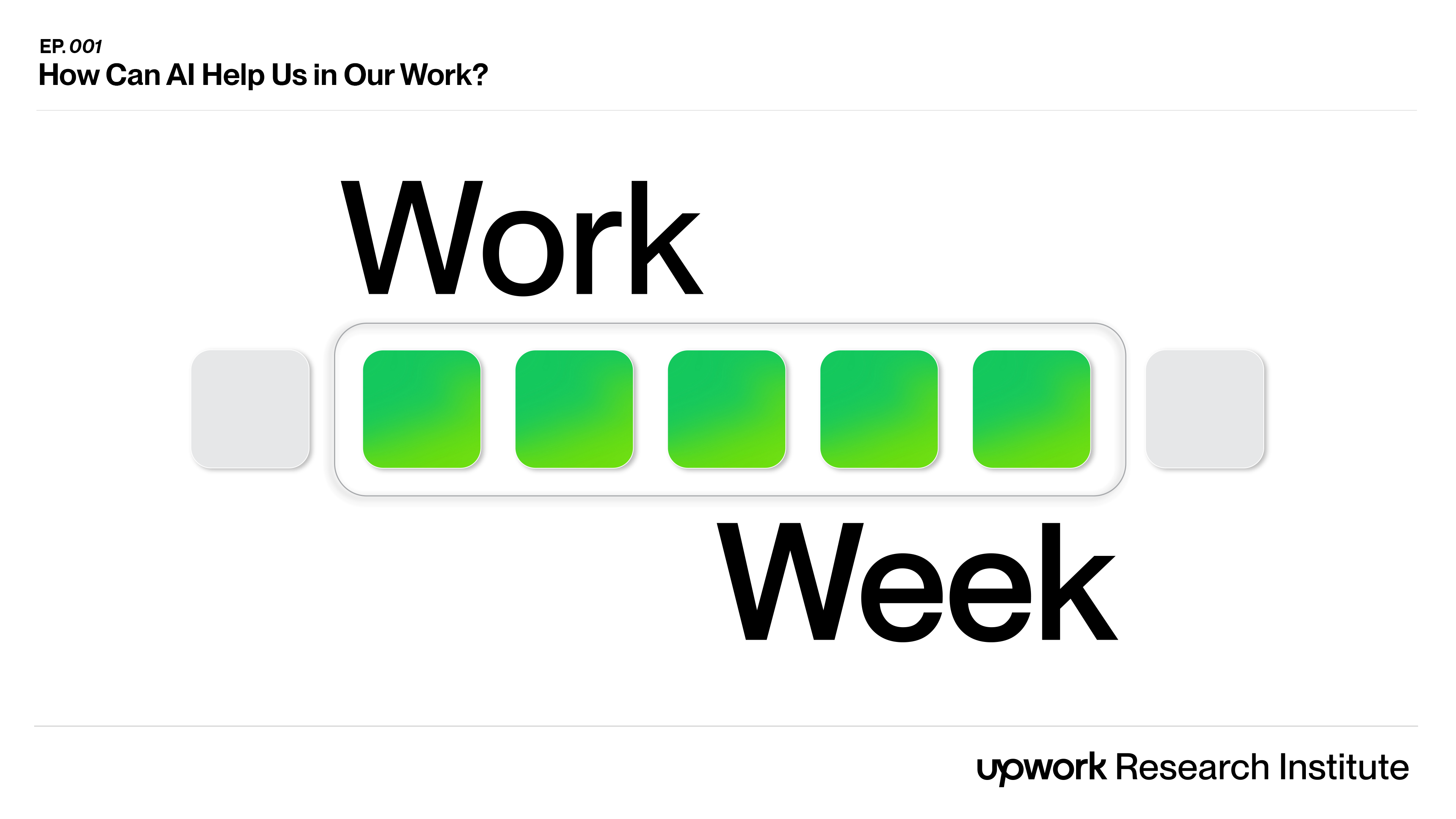
.jpg)